397 papers:
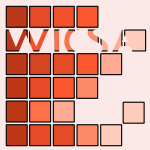 WICSA-2015-LiLA #architecture #identification #technical debt
WICSA-2015-LiLA #architecture #identification #technical debt- Architectural Technical Debt Identification Based on Architecture Decisions and Change Scenarios (ZL, PL, PA), pp. 65–74.
 CASE-2015-AndersenDBH #architecture #flexibility #performance #reuse
CASE-2015-AndersenDBH #architecture #flexibility #performance #reuse- An architecture for efficient reuse in flexible production scenarios (RHA, LD, ABB, JH), pp. 151–157.
 FASE-2015-BrennerGS #distributed #on the fly #specification #synthesis
FASE-2015-BrennerGS #distributed #on the fly #specification #synthesis- On-the-Fly Synthesis of Scarcely Synchronizing Distributed Controllers from Scenario-Based Specifications (CB, JG, WS), pp. 51–65.
 FASE-2015-MacedoCG
FASE-2015-MacedoCG- Exploring Scenario Exploration (NM, AC, TG), pp. 301–315.
 ICSME-2015-KasubuchiMYO #effectiveness #empirical #evaluation #fault #repository
ICSME-2015-KasubuchiMYO #effectiveness #empirical #evaluation #fault #repository- An empirical evaluation of the effectiveness of inspection scenarios developed from a defect repository (KK, SM, AY, CO), pp. 439–448.
 MSR-2015-VasquezWBMP #android #execution #generative #mining
MSR-2015-VasquezWBMP #android #execution #generative #mining- Mining Android App Usages for Generating Actionable GUI-Based Execution Scenarios (MLV, MW, CBC, KM, DP), pp. 111–122.
 DHM-EH-2015-TianLYJCS #analysis #scalability #video
DHM-EH-2015-TianLYJCS #analysis #scalability #video- Single-Variable Scenario Analysis of Vehicle-Pedestrian Potential Crash Based on Video Analysis Results of Large-Scale Naturalistic Driving Data (RT, LL, KY, FJ, YC, RS), pp. 295–304.
 DUXU-DD-2015-MichailidouHL #how
DUXU-DD-2015-MichailidouHL #how- How to Evaluate Use Scenarios and Stories (IM, CH, UL), pp. 609–620.
 DUXU-DD-2015-OliveiraMMM #analysis #behaviour #design
DUXU-DD-2015-OliveiraMMM #analysis #behaviour #design- Scenario Analysis as a Tool for Informing the Design of Behaviour Change Interventions (LCRdO, MCM, VM, AJM), pp. 535–547.
 DUXU-DD-2015-RenziF #delphi #human-computer
DUXU-DD-2015-RenziF #delphi #human-computer- Delphi Method to Explore Future Scenario Possibilities on Technology and HCI (ABR, SFdF), pp. 644–653.
 HCI-IT-2015-DibitontoM #automation #performance
HCI-IT-2015-DibitontoM #automation #performance- Improving User Performance in a Smart Surveillance Scenario through Different Levels of Automation (MD, CMM), pp. 706–716.
 ICEIS-v2-2015-SarmientoALS #modelling #petri net
ICEIS-v2-2015-SarmientoALS #modelling #petri net- Mapping Textual Scenarios to Analyzable Petri-Net Models (ES, EA, JCSdPL, GS), pp. 494–501.
 ICEIS-v2-2015-SarsharNR #case study #comparison #smarttech
ICEIS-v2-2015-SarsharNR #case study #comparison #smarttech- A Study on the Usage of Smartphone Apps in Fire Scenarios — Comparison between GDACSmobile and SmartRescue Apps (PS, VN, JR), pp. 469–474.
 SEKE-2015-ChenZWQJW #api #mining #protocol
SEKE-2015-ChenZWQJW #api #mining #protocol- Extracting More Object Usage Scenarios for API Protocol Mining (DC, YZ, RW, BQ, JJ, WW), pp. 607–612.
 SEKE-2015-LongoV #diagrams #interactive
SEKE-2015-LongoV #diagrams #interactive- Creating User Scenarios through User Interaction Diagrams by Non-Technical Customers (DHL, PV), pp. 330–335.
 MoDELS-2015-MannaSG #combinator #specification #testing
MoDELS-2015-MannaSG #combinator #specification #testing- Synthesizing tests for combinatorial coverage of modal scenario specifications (VPLM, IS, JG), pp. 126–135.
 SAC-2015-DionisisCP #adaptation #execution #feedback #framework #hybrid #monitoring #using
SAC-2015-DionisisCP #adaptation #execution #feedback #framework #hybrid #monitoring #using- A hybrid framework for WS-BPEL scenario execution adaptation, using monitoring and feedback data (MD, VC, GP), pp. 1672–1679.
 SAC-2015-SousaS #domain-specific language #simulation #tool support
SAC-2015-SousaS #domain-specific language #simulation #tool support- A domain specific language for spatial simulation scenarios (DSL3S): introduction and tool support (LdS, ARdS), pp. 1854–1856.
 ESEC-FSE-2015-GreenyerHMB #analysis #re-engineering #requirements
ESEC-FSE-2015-GreenyerHMB #analysis #re-engineering #requirements- Evaluating a formal scenario-based method for the requirements analysis in automotive software engineering (JG, MH, JM, RB), pp. 1002–1005.
 SPLC-2015-CordyDGGH #product line #specification
SPLC-2015-CordyDGGH #product line #specification- All-at-once-synthesis of controllers from scenario-based product line specifications (MC, JMD, JG, EG, PH), pp. 26–35.
 ECSA-2014-KochHD #generative #requirements #specification
ECSA-2014-KochHD #generative #requirements #specification- Generating EAST-ADL Event Chains from Scenario-Based Requirements Specifications (TK, JH, JD), pp. 146–153.
 WICSA-2014-KrkaM #component
WICSA-2014-KrkaM #component- Component-Aware Triggered Scenarios (IK, NM), pp. 129–138.
 CASE-2014-LongLXJ #distributed #probability
CASE-2014-LongLXJ #distributed #probability- A scenario-based distributed stochastic MPC for building temperature regulation (YL, SL, LX, KHJ), pp. 1091–1096.
 DATE-2014-TsaiCCC #3d #configuration management #memory management #multi
DATE-2014-TsaiCCC #3d #configuration management #memory management #multi- Scenario-aware data placement and memory area allocation for Multi-Processor System-on-Chips with reconfigurable 3D-stacked SRAMs (MLT, YJC, YTC, RHC), pp. 1–6.
 FASE-2014-CohenM #analysis #configuration management #semantics #specification
FASE-2014-CohenM #analysis #configuration management #semantics #specification- Semantically Configurable Analysis of Scenario-Based Specifications (BC, SM), pp. 185–199.
 FASE-2014-LanduytJ #architecture #requirements
FASE-2014-LanduytJ #architecture #requirements- Modularizing Early Architectural Assumptions in Scenario-Based Requirements (DVL, WJ), pp. 170–184.
 IFM-2014-KordyPS #framework #probability #security
IFM-2014-KordyPS #framework #probability #security- A Probabilistic Framework for Security Scenarios with Dependent Actions (BK, MP, PS), pp. 256–271.
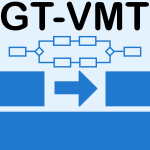 GT-VMT-2014-BrennerGHLST #case study #realtime #sequence #testing #validation
GT-VMT-2014-BrennerGHLST #case study #realtime #sequence #testing #validation- ScenarioTools Real-Time Play-Out for Test Sequence Validation in an Automotive Case Study (CB, JG, JH, GL, GS, MT).
 CHI-2014-PanSS #interactive #trust
CHI-2014-PanSS #interactive #trust- Comparing flat and spherical displays in a trust scenario in avatar-mediated interaction (YP, WS, AS), pp. 1397–1406.
 DUXU-DI-2014-FigueiredoPNMTTAF #industrial #navigation #scalability
DUXU-DI-2014-FigueiredoPNMTTAF #industrial #navigation #scalability- In-Place Natural and Effortless Navigation for Large Industrial Scenarios (LSF, MP, EVN, TM, JMXNT, VT, PA, DQdF), pp. 550–561.
 DUXU-ELAS-2014-Chunpir0B #comprehension #using
DUXU-ELAS-2014-Chunpir0B #comprehension #using- Using Soft Systems Methodology (SSM) in Understanding Current User-Support Scenario in the Climate Science Domain of Cyber-Infrastructures (HIC, TL, AAB), pp. 495–506.
 DUXU-TMT-2014-SchreppHT #evaluation #experience #user interface
DUXU-TMT-2014-SchreppHT #evaluation #experience #user interface- Applying the User Experience Questionnaire (UEQ) in Different Evaluation Scenarios (MS, AH, JT), pp. 383–392.
 HCI-AS-2014-DiasDH #fuzzy #interactive #modelling #quality #using
HCI-AS-2014-DiasDH #fuzzy #interactive #modelling #quality #using- Exploring B-Learning Scenarios Using Fuzzy Logic-Based Modeling of Users’ LMS Quality of Interaction in Ergonomics and Psychomotor Rehabilitation Academic Courses (SBD, JAD, LJH), pp. 233–243.
 ICEIS-v2-2014-HoosGKM #analysis #framework #identification #mobile #process
ICEIS-v2-2014-HoosGKM #analysis #framework #identification #mobile #process- Improving Business Processes Through Mobile Apps — An Analysis Framework to Identify Value-added App Usage Scenarios (EH, CG, SK, BM), pp. 71–82.
 ICEIS-v2-2014-MaretLL #ad hoc #community #semantics #web
ICEIS-v2-2014-MaretLL #ad hoc #community #semantics #web- A Semantic Web Model for Ad Hoc Context-aware Virtual Communities — Application to the Smart Place Scenario (PM, FL, DL), pp. 591–598.
 ICPR-2014-KhoshrouCT #learning #multi #video
ICPR-2014-KhoshrouCT #learning #multi #video- Active Learning from Video Streams in a Multi-camera Scenario (SK, JSC, LFT), pp. 1248–1253.
 PPDP-J-2012-LagoP14 #call-by #dependent type #linear
PPDP-J-2012-LagoP14 #call-by #dependent type #linear- Linear dependent types in a call-by-value scenario (UDL, BP), pp. 77–100.
 RE-2014-Ferreira #evolution #requirements
RE-2014-Ferreira #evolution #requirements- Creative Strategic Scenarios for preparation to requirements evolution (MGF), pp. 494–499.
 SAC-2014-GaubatzHZS #collaboration #constraints #documentation #editing #realtime #web
SAC-2014-GaubatzHZS #collaboration #constraints #documentation #editing #realtime #web- Enforcing entailment constraints in offline editing scenarios for real-time collaborative web documents (PG, WH, UZ, MS), pp. 735–742.
 SAC-2014-RighiCGFAG #transaction
SAC-2014-RighiCGFAG #transaction- Redesigning transaction load balancing on electronic funds transfer scenarios (RdRR, CAdC, LGJ, KF, ALA, LG), pp. 775–777.
 ASE-2013-FahlandLM #mining
ASE-2013-FahlandLM #mining- Mining branching-time scenarios (DF, DL, SM), pp. 443–453.
 CASE-2013-ParisioMVJ #approach #predict
CASE-2013-ParisioMVJ #approach #predict- A scenario-based predictive control approach to building HVAC management systems (AP, MM, DV, KHJ), pp. 428–435.
 DAC-2013-QuanP #algorithm #runtime
DAC-2013-QuanP #algorithm #runtime- A scenario-based run-time task mapping algorithm for MPSoCs (WQ, ADP), p. 6.
 FASE-2013-AbdallahGHJ #constraints #optimisation
FASE-2013-AbdallahGHJ #constraints #optimisation- Scenario Realizability with Constraint Optimization (RA, AG, LH, CJ), pp. 194–209.
 ICSM-2013-LabicheKM #analysis #diagrams
ICSM-2013-LabicheKM #analysis #diagrams- Combining Static and Dynamic Analyses to Reverse-Engineer Scenario Diagrams (YL, BK, HM), pp. 130–139.
 GT-VMT-2013-GreenyerBM #diagrams #sequence chart #specification
GT-VMT-2013-GreenyerBM #diagrams #sequence chart #specification- The ScenarioTools Play-Out of Modal Sequence Diagram Specifications with Environment Assumptions (JG, CB, VPLM).
 CHI-2013-BauerK #design #named
CHI-2013-BauerK #design #named- DesignLibs: a scenario-based design method for ideation (JSB, JAK), pp. 1955–1958.
 CHI-2013-KusanoNO #design #interactive #user interface
CHI-2013-KusanoNO #design #interactive #user interface- Scenario-based interactive UI design (KK, MN, TO), pp. 391–394.
 DHM-SET-2013-LauterbachS #evaluation #implementation #interactive
DHM-SET-2013-LauterbachS #evaluation #implementation #interactive- Implementing Scenarios as an Evaluation Method of the Patient-Physician Interaction in Decision Aids (CVL, JDS), pp. 232–239.
 DUXU-NTE-2013-Gyoda #ad hoc #analysis #communication #evaluation #network #performance
DUXU-NTE-2013-Gyoda #ad hoc #analysis #communication #evaluation #network #performance- Analysis and Evaluation of Wireless Ad Hoc Network Performance for a Disaster Communication Model and Scenarios (KG), pp. 65–74.
 HCI-AMTE-2013-UedaGTHYY #design #experience
HCI-AMTE-2013-UedaGTHYY #design #experience- Structured Scenario-Based Design Method for Experience Vision (YU, KG, KT, SH, KY, KY), pp. 500–509.
 HIMI-LCCB-2013-BraunerRGSZ
HIMI-LCCB-2013-BraunerRGSZ- Human Factors in Supply Chain Management — Decision Making in Complex Logistic Scenarios (PB, SR, MG, GS, MZ), pp. 423–432.
 KDIR-KMIS-2013-MawasC #design #game studies
KDIR-KMIS-2013-MawasC #design #game studies- Designing Collaboratively Crisis Scenarios for Serious Games (NEM, JPC), pp. 381–388.
 SEKE-2013-Lacanienta0TO #approach #generative #knowledge-based #web
SEKE-2013-Lacanienta0TO #approach #generative #knowledge-based #web- A Knowledge-based Approach for Generating Test Scenarios for Web Applications (RL, ST, HT, MO), pp. 166–171.
 ICMT-2013-CuadradoL #challenge #model transformation #streaming
ICMT-2013-CuadradoL #challenge #model transformation #streaming- Streaming Model Transformations: Scenarios, Challenges and Initial Solutions (JSC, JdL), pp. 1–16.
 MoDELS-2013-GreenyerK #composition #specification #synthesis
MoDELS-2013-GreenyerK #composition #specification #synthesis- Compositional Synthesis of Controllers from Scenario-Based Assume-Guarantee Specifications (JG, EK), pp. 774–789.
 MoDELS-2013-GreenyerK #composition #specification #synthesis
MoDELS-2013-GreenyerK #composition #specification #synthesis- Compositional Synthesis of Controllers from Scenario-Based Assume-Guarantee Specifications (JG, EK), pp. 774–789.
 ER-BR-2013-GuedesSC #approach #product line
ER-BR-2013-GuedesSC #approach #product line- Goals and Scenarios to Software Product Lines: the GS2SPL Approach (GG, CTLLS, JC).
 REFSQ-2013-BouillonMP #bibliography #requirements #traceability
REFSQ-2013-BouillonMP #bibliography #requirements #traceability- A Survey on Usage Scenarios for Requirements Traceability in Practice (EB, PM, IP), pp. 158–173.
 SAC-2013-AbdallahHA #approach #design #quantifier
SAC-2013-AbdallahHA #approach #design #quantifier- Quantified extreme scenario based design approach (AA, RH, MAA), pp. 1117–1122.
 SAC-2013-CouceiroPR #architecture
SAC-2013-CouceiroPR #architecture- A collective robotic architecture in search and rescue scenarios (MSC, DP, RPR), pp. 64–69.
 SAC-2013-DionisisCP #adaptation #exception #framework
SAC-2013-DionisisCP #adaptation #exception #framework- An integrated framework for QoS-based adaptation and exception resolution in WS-BPEL scenarios (MD, VC, GP), pp. 1900–1906.
 ESEC-FSE-2013-GreenyerBCHG #incremental #product line #specification
ESEC-FSE-2013-GreenyerBCHG #incremental #product line #specification- Incrementally synthesizing controllers from scenario-based product line specifications (JG, CB, MC, PH, EG), pp. 433–443.
 ICSE-2013-AlrajehRLMMN
ICSE-2013-AlrajehRLMMN- Computational alignment of goals and scenarios for complex systems (DA, AR, JL, NAMM, AM, MN), pp. 1249–1252.
 ICSE-2013-MaozS #specification
ICSE-2013-MaozS #specification- Counter play-out: executing unrealizable scenario-based specifications (SM, YS), pp. 242–251.
 ICSE-2013-NelsonSDFK #named
ICSE-2013-NelsonSDFK #named- Aluminum: principled scenario exploration through minimality (TN, SS, DJD, KF, SK), pp. 232–241.
 ICST-2013-IchidaSO #testing
ICST-2013-IchidaSO #testing- A Method of Making Single Function Tests for Constituting Scenario Tests (NI, TS, HO), pp. 479–480.
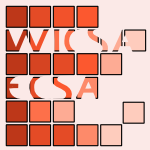 WICSA-ECSA-2012-LanduytTJ #architecture #requirements
WICSA-ECSA-2012-LanduytTJ #architecture #requirements- Documenting Early Architectural Assumptions in Scenario-Based Requirements (DVL, ET, WJ), pp. 329–333.
 DATE-2012-TheelenKW #data flow #model checking
DATE-2012-TheelenKW #data flow #model checking- Model checking of Scenario-Aware Dataflow with CADP (BDT, JPK, HW), pp. 653–658.
 DATE-2012-WanK #embedded #monitoring
DATE-2012-WanK #embedded #monitoring- Monitoring active filters under automotive aging scenarios with embedded instrument (JW, HGK), pp. 1096–1101.
 DATE-2012-YangGBSC #game studies #graph #policy #resource management
DATE-2012-YangGBSC #game studies #graph #policy #resource management- Playing games with scenario- and resource-aware SDF graphs through policy iteration (YY, MG, TB, SS, HC), pp. 194–199.
 DATE-2012-ZimmermannBR #analysis #multi #power management
DATE-2012-ZimmermannBR #analysis #multi #power management- Analysis of multi-domain scenarios for optimized dynamic power management strategies (JZ, OB, WR), pp. 862–865.
 ITiCSE-2012-GordonMM #programming
ITiCSE-2012-GordonMM #programming- Spaghetti for the main course?: observations on the naturalness of scenario-based programming (MG, AM, OMS), pp. 198–203.
 FASE-2012-AlrajehKRU #learning #satisfiability #specification
FASE-2012-AlrajehKRU #learning #satisfiability #specification- Learning from Vacuously Satisfiable Scenario-Based Specifications (DA, JK, AR, SU), pp. 377–393.
 WRLA-2012-HillsKV #program analysis #rascal
WRLA-2012-HillsKV #program analysis #rascal- Program Analysis Scenarios in Rascal (MH, PK, JJV), pp. 10–30.
 CSMR-2012-Villavicencio #maintenance #refactoring
CSMR-2012-Villavicencio #maintenance #refactoring- A New Software Maintenance Scenario Based on Refactoring Techniques (GV), pp. 341–346.
 ICEIS-v1-2012-LambeckSAG #concept #enterprise #realtime
ICEIS-v1-2012-LambeckSAG #concept #enterprise #realtime- Changing Concepts in Human-Computer-Interaction in Real-time Enterprise Systems — Introducing a Concept for Intuitive Decision Support in SCM Scenarios (CL, DS, RA, RG), pp. 139–144.
 ICEIS-v3-2012-CansadoVS #analysis #architecture #enterprise #multi #using
ICEIS-v3-2012-CansadoVS #analysis #architecture #enterprise #multi #using- Using Multi-criteria Analysis to Evaluate Enterprise Architecture Scenarios (FC, AV, GS), pp. 232–237.
 SEKE-2012-CostaCORSZ #generative #modelling #performance #testing
SEKE-2012-CostaCORSZ #generative #modelling #performance #testing- Generating Performance Test Scripts and Scenarios Based on Abstract Intermediate Models (LTC, RMC, FMdO, EdMR, MBdS, AFZ), pp. 112–117.
 SEKE-2012-GuedesSCSDS #named #product line
SEKE-2012-GuedesSCSDS #named #product line- GS2SPL: Goals and Scenarios to Software Product Lines (GG, CTLLS, JC, MS, DD, CS), pp. 651–656.
 MoDELS-2012-MaozS #semantics #synthesis
MoDELS-2012-MaozS #semantics #synthesis- Assume-Guarantee Scenarios: Semantics and Synthesis (SM, YS), pp. 335–351.
 MoDELS-2012-MaozS #semantics #synthesis
MoDELS-2012-MaozS #semantics #synthesis- Assume-Guarantee Scenarios: Semantics and Synthesis (SM, YS), pp. 335–351.
 PPDP-2012-LagoP #call-by #dependent type #linear
PPDP-2012-LagoP #call-by #dependent type #linear- Linear dependent types in a call-by-value scenario (UDL, BP), pp. 115–126.
 RE-2012-GreenyerSCH #consistency #performance #product line #specification
RE-2012-GreenyerSCH #consistency #performance #product line #specification- Efficient consistency checking of scenario-based product-line specifications (JG, AMS, MC, PH), pp. 161–170.
 SAC-2012-FariaBGC #algorithm #clustering #data type
SAC-2012-FariaBGC #algorithm #clustering #data type- Improving the offline clustering stage of data stream algorithms in scenarios with variable number of clusters (ERF, RCB, JG, ACPLFC), pp. 829–830.
 FSE-2012-XuCBB #design #video
FSE-2012-XuCBB #design #video- From pixels to bytes: evolutionary scenario based design with video (HX, OC, NB, BB), p. 31.
 TAP-2012-BroschEGKSTWW #diagrams #testing #towards #uml
TAP-2012-BroschEGKSTWW #diagrams #testing #towards #uml- Towards Scenario-Based Testing of UML Diagrams (PB, UE, SG, GK, MS, HT, MW, MW), pp. 149–155.
 WICSA-2011-TsakirisKM #case study #evaluation #hybrid #industrial #plugin #quality
WICSA-2011-TsakirisKM #case study #evaluation #hybrid #industrial #plugin #quality- Evaluation of the Use of Quality Attribute Scenarios in a Plug-In Hybrid Electric Vehicle Controls System — Industrial Case Study (AT, JK, RM), pp. 66–72.
 ICDAR-2011-AtanasiuLV #novel #retrieval #using
ICDAR-2011-AtanasiuLV #novel #retrieval #using- Writer Retrieval — Exploration of a Novel Biometric Scenario Using Perceptual Features Derived from Script Orientation (VA, LLS, NV), pp. 628–632.
 ICDAR-2011-ClausnerPA11a #analysis #documentation #evaluation #layout #performance
ICDAR-2011-ClausnerPA11a #analysis #documentation #evaluation #layout #performance- Scenario Driven In-depth Performance Evaluation of Document Layout Analysis Methods (CC, SP, AA), pp. 1404–1408.
 SIGMOD-2011-KennedyLLSN #enterprise #fuzzy #nondeterminism #parametricity
SIGMOD-2011-KennedyLLSN #enterprise #fuzzy #nondeterminism #parametricity- Fuzzy prophet: parameter exploration in uncertain enterprise scenarios (OK, SL, CL, SS, SN), pp. 1303–1306.
 VLDB-2011-JungHFR #database
VLDB-2011-JungHFR #database- Serializable Snapshot Isolation for Replicated Databases in High-Update Scenarios (HJ, HH, AF, UR), pp. 783–794.
 ICPC-2011-EitanGHMW #comprehension #on the #source code #visualisation
ICPC-2011-EitanGHMW #comprehension #on the #source code #visualisation- On Visualization and Comprehension of Scenario-Based Programs (NE, MG, DH, AM, GW), pp. 189–192.
 SCAM-2011-SfayhiS #analysis #interactive #visualisation #what
SCAM-2011-SfayhiS #analysis #interactive #visualisation #what- What You See is What You Asked for: An Effort-Based Transformation of Code Analysis Tasks into Interactive Visualization Scenarios (AS, HAS), pp. 195–203.
 DUXU-v1-2011-BjorndalRM #industrial #lessons learnt #requirements #specification #using
DUXU-v1-2011-BjorndalRM #industrial #lessons learnt #requirements #specification #using- Lessons Learned from Using Personas and Scenarios for Requirements Specification of Next-Generation Industrial Robots (PB, MJR, SM), pp. 378–387.
 DUXU-v1-2011-Hsu11a #approach #design #education #industrial
DUXU-v1-2011-Hsu11a #approach #design #education #industrial- Training Designers of Real-World Products: Scenario Approach in Industrial Design Curriculum (YCH), pp. 432–441.
 DUXU-v2-2011-AgnerTF #usability
DUXU-v2-2011-AgnerTF #usability- Scenario and Task Based Interview to Evaluate Usability of Computer Assisted Data Collection (LA, PT, SBLF), pp. 349–358.
 HCI-DDA-2011-KaelberM #analysis
HCI-DDA-2011-KaelberM #analysis- From Structural Analysis to Scenarios and Patterns for Knowledge Sharing Applications (CK, CM), pp. 258–267.
 HCI-DDA-2011-VallsDL
HCI-DDA-2011-VallsDL- Enhancing Personas with Their Main Scenarios (AVS, MGD, MLR), pp. 136–141.
 HCI-ITE-2011-MorieCB #case study #using
HCI-ITE-2011-MorieCB #case study #using- Report on a Preliminary Study Using Breath Control and a Virtual Jogging Scenario as Biofeedback for Resilience Training (JFM, EC, JGB), pp. 474–480.
 HCI-UA-2011-KanekoN #evaluation #simulation
HCI-UA-2011-KanekoN #evaluation #simulation- Proposal of BCM Evaluation Method Based on Disaster Scenario Simulation (RK, YN), pp. 346–353.
 HIMI-v1-2011-LoudenFMDS #information management #user interface
HIMI-v1-2011-LoudenFMDS #information management #user interface- User Interface and Information Management of Scenarios (RL, MF, GAM, JD, SLS), pp. 30–39.
 HIMI-v2-2011-PohlML #hybrid #learning #standard
HIMI-v2-2011-PohlML #hybrid #learning #standard- Transforming a Standard Lecture into a Hybrid Learning Scenario (HMP, JTM, JL), pp. 55–61.
 ICEIS-v2-2011-DingL #database #design #security
ICEIS-v2-2011-DingL #database #design #security- Based on “Scenarios-response” Model of Security Plans for Emergency Management System of Database Design (DD, XL), pp. 210–212.
 SEKE-2011-FaureFHUV #execution #ubiquitous
SEKE-2011-FaureFHUV #execution #ubiquitous- User-defined Scenarios in Ubiquitous Environments: Creation, Execution Control and Sharing (MF, LF, MH, CU, SV), pp. 302–307.
 BX-2011-Kindler #concept #graph grammar #implementation
BX-2011-Kindler #concept #graph grammar #implementation- Triple Graph Grammars: Concepts, Extensions, Implementations, and Application Scenarios (EK), p. 60.
 ESEC-FSE-2011-Ben-DavidCGU #logic #named #specification
ESEC-FSE-2011-Ben-DavidCGU #logic #named #specification- CSSL: a logic for specifying conditional scenarios (SBD, MC, AG, SU), pp. 37–47.
 CAV-2011-CimattiMT #automaton #hybrid #performance #verification
CAV-2011-CimattiMT #automaton #hybrid #performance #verification- Efficient Scenario Verification for Hybrid Automata (AC, SM, ST), pp. 317–332.
 ECSA-2010-ReijonenKH #architecture #case study #experience
ECSA-2010-ReijonenKH #architecture #case study #experience- Experiences from Scenario-Based Architecture Evaluations with ATAM (VR, JK, IJH), pp. 214–229.
 ASE-2010-HarelMSB #named #programming #towards
ASE-2010-HarelMSB #named #programming #towards- PlayGo: towards a comprehensive tool for scenario based programming (DH, SM, SS, DB), pp. 359–360.
 ASE-2010-LoM #mining #specification
ASE-2010-LoM #mining #specification- Scenario-based and value-based specification mining: better together (DL, SM), pp. 387–396.
 DATE-2010-LarsenLNP #analysis #realtime #synthesis #using
DATE-2010-LarsenLNP #analysis #realtime #synthesis #using- Scenario-based analysis and synthesis of real-time systems using uppaal (KGL, SL, BN, SP), pp. 447–452.
 DATE-2010-TraubSKB #network
DATE-2010-TraubSKB #network- Scenario extraction for a refined timing-analysis of automotive network topologies (MT, TS, OK, JB), pp. 81–86.
 SEFM-2010-DanHC
SEFM-2010-DanHC- Non-local Choice and Implied Scenarios (HD, RMH, SC), pp. 53–62.
 ICEIS-DISI-2010-NikitinTL #framework #industrial #named #towards
ICEIS-DISI-2010-NikitinTL #framework #industrial #named #towards- SOFIA: Agent Scenario for Forest Industry — Tailoring UBIWARE Platform Towards Industrial Agent-driven Solutions (SN, VYT, ML), pp. 15–22.
 ICEIS-DISI-2010-SunyaevKDK #framework #health
ICEIS-DISI-2010-SunyaevKDK #framework #health- Attack Scenarios for Possible Misuse of Peripheral Parts in the German Health Information Infrastructure (AS, AK, SD, HK), pp. 229–235.
 ICPR-2010-KaferHWKR #predict #recognition
ICPR-2010-KaferHWKR #predict #recognition- Recognition and Prediction of Situations in Urban Traffic Scenarios (EK, CH, CW, FK, HJR), pp. 4234–4237.
 ICPR-2010-SaninSL #robust
ICPR-2010-SaninSL #robust- Improved Shadow Removal for Robust Person Tracking in Surveillance Scenarios (AS, CS, BCL), pp. 141–144.
 SEKE-2010-MoshirpourMF #behaviour #detection #distributed #specification #using
SEKE-2010-MoshirpourMF #behaviour #detection #distributed #specification #using- Detecting Emergent Behavior in Distributed Systems Using Scenario-Based Specifications (MM, AM, BHF), pp. 349–354.
 REFSQ-2010-SikoraDP #abstraction #consistency #multi #specification
REFSQ-2010-SikoraDP #abstraction #consistency #multi #specification- Supporting the Consistent Specification of Scenarios across Multiple Abstraction Levels (ES, MD, KP), pp. 45–59.
 SAC-2010-HayashiB #comprehension
SAC-2010-HayashiB #comprehension- Understanding meta-communication in an inclusive scenario (ECSH, MCCB), pp. 1213–1218.
 SAC-2010-PenimA #identification #modelling
SAC-2010-PenimA #identification #modelling- Identifying and modeling aspectual scenarios with theme and MATA (ASP, JA), pp. 287–291.
 ICSE-2010-DoanLMK #mining #named #specification
ICSE-2010-DoanLMK #mining #named #specification- LM: a miner for scenario-based specifications (TAD, DL, SM, SCK), pp. 319–320.
 ICSE-2010-Sunter
ICSE-2010-Sunter- South Africa and the world beyond 2010: the latest scenarios (CS), p. 1.
 ICTSS-2010-UlrichAHB #implementation
ICTSS-2010-UlrichAHB #implementation- From Scenarios to Test Implementations Via Promela (AU, EHA, HH, SB), pp. 236–249.
 WICSA-ECSA-2009-KuhnMKSBT #aspect-oriented #performance
WICSA-ECSA-2009-KuhnMKSBT #aspect-oriented #performance- Introducing Aspect-oriented Space Containers for efficient publish/subscribe scenarios in Intelligent Transportation Systems (EK, RM, LK, CS, SB, ST), pp. 313–316.
 ASE-2009-LoM #mining #specification
ASE-2009-LoM #mining #specification- Mining Hierarchical Scenario-Based Specifications (DL, SM), pp. 359–370.
 ICPC-2009-SatoshiII #interactive #named #visualisation
ICPC-2009-SatoshiII #interactive #named #visualisation- OGAN: Visualizing object interaction scenarios based on dynamic interaction context (MS, TI, KI), pp. 283–284.
 FM-2009-LarsenLNP #realtime #requirements #verification
FM-2009-LarsenLNP #realtime #requirements #verification- Verifying Real-Time Systems against Scenario-Based Requirements (KGL, SL, BN, SP), pp. 676–691.
 SEFM-2009-BotaschanjanH #integration
SEFM-2009-BotaschanjanH #integration- Property-Driven Scenario Integration (JB, AH), pp. 147–156.
 SEFM-2009-ChandrasekaranM #component #concurrent #coordination #specification
SEFM-2009-ChandrasekaranM #component #concurrent #coordination #specification- Specifying Interacting Components with Coordinated Concurrent Scenarios (PC, MM), pp. 61–69.
 DHM-2009-MobusEGZ #empirical #modelling #probability
DHM-2009-MobusEGZ #empirical #modelling #probability- Probabilistic and Empirical Grounded Modeling of Agents in (Partial) Cooperative Traffic Scenarios (CM, ME, HG, MZ), pp. 423–432.
 HCD-2009-ChuangO #correlation #design #mobile #using
HCD-2009-ChuangO #correlation #design #mobile #using- A Photo Correlation Map Using Mobile AP II for Scenario-Based Design (YLC, MO), pp. 177–183.
 HCD-2009-Go #design #question #usability #what
HCD-2009-Go #design #question #usability #what- What Properties Make Scenarios Useful in Design for Usability? (KG), pp. 193–201.
 HCD-2009-HsuC #database
HCD-2009-HsuC #database- Developing a Scenario Database for Product Innovation (SHH, JWC), pp. 585–593.
 HCD-2009-Varsaluoma #evaluation #heuristic #mobile
HCD-2009-Varsaluoma #evaluation #heuristic #mobile- Scenarios in the Heuristic Evaluation of Mobile Devices: Emphasizing the Context of Use (JV), pp. 332–341.
 HCD-2009-YanagidaUGTHY #design
HCD-2009-YanagidaUGTHY #design- Structured Scenario-Based Design Method (KY, YU, KG, KT, SH, KY), pp. 374–380.
 HCI-AUII-2009-IbenWK #feedback #smarttech #visual notation
HCI-AUII-2009-IbenWK #feedback #smarttech #visual notation- The Impact of Different Visual Feedback Presentation Methods in a Wearable Computing Scenario (HI, HW, EMK), pp. 752–759.
 HCI-NIMT-2009-BannatGRRRW #industrial #multimodal
HCI-NIMT-2009-BannatGRRRW #industrial #multimodal- A Multimodal Human-Robot-Interaction Scenario: Working Together with an Industrial Robot (AB, JG, TR, WR, GR, FW), pp. 303–311.
 HCI-NT-2009-MatsuoY #3d #named #visualisation
HCI-NT-2009-MatsuoY #3d #named #visualisation- BunBunMovie: Scenario Visualizing System Based on 3-D Character (TM, TY), pp. 634–643.
 HIMI-DIE-2009-AnggreeniV #adaptation #design #framework
HIMI-DIE-2009-AnggreeniV #adaptation #design #framework- Supporting Scenario-Based Product Design and Its Adapters: An Informal Framework for Scenario Creation and Use (IA, MvdV), pp. 217–226.
 HIMI-DIE-2009-LeeCW #design #evaluation #experience #interface
HIMI-DIE-2009-LeeCW #design #evaluation #experience #interface- Design and Evaluation of the Customized Product Color Combination Interface Based on Scenario Experience (YJL, CYC, FGW), pp. 263–270.
 HIMI-II-2009-SawaragiIHN #approach #identification #using
HIMI-II-2009-SawaragiIHN #approach #identification #using- Identifying Latent Similarities among Near-Miss Incident Records Using a Text-Mining Method and a Scenario-Based Approach (TS, KI, YH, HN), pp. 594–603.
 IDGD-2009-SwansonSG #framework #using
IDGD-2009-SwansonSG #framework #using- Exploring Cultural Context Using the Contextual Scenario Framework (ES, KS, JG), pp. 117–126.
 VISSOFT-2009-HassaineDSP #analysis #generative #maintenance #visualisation
VISSOFT-2009-HassaineDSP #analysis #generative #maintenance #visualisation- Generating visualization-based analysis scenarios from maintenance task descriptions (SH, KD, HAS, PP), pp. 41–44.
 ICEIS-HCI-2009-GarciaDCBSS #design
ICEIS-HCI-2009-GarciaDCBSS #design- Scenario-based Design — An Essential Instrument for an Innovative Target Application — Case Report (LSG, AID, MAC, LCEDB, FS, MSS), pp. 113–117.
 ICEIS-ISAS-2009-ArmenterosMMS #communication #dependence #prototype #security
ICEIS-ISAS-2009-ArmenterosMMS #communication #dependence #prototype #security- Security and Dependability in Ambient Intelligence Scenarios — The Communication Prototype (ÁA, AM, AM, DS), pp. 49–56.
 ICEIS-J-2009-FurtadoSC #design
ICEIS-J-2009-FurtadoSC #design- Stories and Scenarios Working with Culture-Art and Design in a Cross-Cultural Context (EF, AS, LC), pp. 831–842.
 KMIS-2009-DevedzicJPN #collaboration #learning #research
KMIS-2009-DevedzicJPN #collaboration #learning #research- Learning Scenarios and Services for an SME — Collaboration between an SME and a Research Team (VD, JJ, VP, KN), pp. 218–223.
 KMIS-2009-KivijarviPT
KMIS-2009-KivijarviPT- Rehearsing for the Future — Scenarios as an Enabler and a Product of Organizational Knowledge Creation (HK, KP, MT), pp. 46–54.
 SEKE-2009-HamouiHUV #component #specification
SEKE-2009-HamouiHUV #component #specification- Specification of a Component-based Domotic System to Support User-defined Scenarios (FH, MH, CU, SV), pp. 597–602.
 MoDELS-2009-Maoz #modelling #polymorphism #semantics #specification
MoDELS-2009-Maoz #modelling #polymorphism #semantics #specification- Polymorphic Scenario-Based Specification Models: Semantics and Applications (SM), pp. 499–513.
 MoDELS-2009-MussbacherAW #aspect-oriented #modelling
MoDELS-2009-MussbacherAW #aspect-oriented #modelling- Refactoring-Safe Modeling of Aspect-Oriented Scenarios (GM, DA, JW), pp. 286–300.
 MoDELS-2009-Maoz #modelling #polymorphism #semantics #specification
MoDELS-2009-Maoz #modelling #polymorphism #semantics #specification- Polymorphic Scenario-Based Specification Models: Semantics and Applications (SM), pp. 499–513.
 MoDELS-2009-MussbacherAW #aspect-oriented #modelling
MoDELS-2009-MussbacherAW #aspect-oriented #modelling- Refactoring-Safe Modeling of Aspect-Oriented Scenarios (GM, DA, JW), pp. 286–300.
 RE-2009-MussbacherGA #analysis #modelling
RE-2009-MussbacherGA #analysis #modelling- Modeling and Analysis of URN Goals and Scenarios with jUCMNav (GM, SG, DA), pp. 383–384.
 RE-2009-MussbacherWA #aspect-oriented #detection #interactive #semantics
RE-2009-MussbacherWA #aspect-oriented #detection #interactive #semantics- Semantic-Based Interaction Detection in Aspect-Oriented Scenarios (GM, JW, DA), pp. 203–212.
 REFSQ-2009-SeyffGMG #case study #experience #requirements
REFSQ-2009-SeyffGMG #case study #experience #requirements- Scenarios in the Wild: Experiences with a Contextual Requirements Discovery Method (NS, FG, NAMM, PG), pp. 147–161.
 SAC-2009-MirallesLE #adaptation #multi #peer-to-peer
SAC-2009-MirallesLE #adaptation #multi #peer-to-peer- Multi-agent system adaptation in a peer-to-peer scenario (JCM, MLS, ME), pp. 735–739.
 SAC-2009-TimotheouL #communication #nondeterminism
SAC-2009-TimotheouL #communication #nondeterminism- Autonomous networked robots for the establishment of wireless communication in uncertain emergency response scenarios (ST, GL), pp. 1171–1175.
 ICSE-2009-HenklerGHSAEHLSG #behaviour #realtime #synthesis
ICSE-2009-HenklerGHSAEHLSG #behaviour #realtime #synthesis- Synthesis of timed behavior from scenarios in the Fujaba Real-Time Tool Suite (SH, JG, MH, WS, KA, TE, CH, RL, AS, HG), pp. 615–618.
 CGO-2009-MarsH #framework #online #optimisation
CGO-2009-MarsH #framework #online #optimisation- Scenario Based Optimization: A Framework for Statically Enabling Online Optimizations (JM, RH), pp. 169–179.
 CAV-2009-PanBL #named #specification
CAV-2009-PanBL #named #specification- TASS: Timing Analyzer of Scenario-Based Specifications (MP, LB, XL), pp. 689–695.
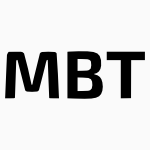 MBT-2009-DadeauT #animation #named #testing
MBT-2009-DadeauT #animation #named #testing- jSynoPSys — A Scenario-Based Testing Tool based on the Symbolic Animation of B Machines (FD, RT), pp. 117–132.
 CBSE-2008-ArbabM #interactive #specification #synthesis
CBSE-2008-ArbabM #interactive #specification #synthesis- Synthesis of Connectors from Scenario-Based Interaction Specifications (FA, SM), pp. 114–129.
 ASE-2008-LoM #mining
ASE-2008-LoM #mining- Mining Scenario-Based Triggers and Effects (DL, SM), pp. 109–118.
 DAC-2008-HamersE #automation #identification #independence
DAC-2008-HamersE #automation #identification #independence- Automated hardware-independent scenario identification (JH, LE), pp. 954–959.
 DATE-2008-NovoBLPC #energy #fixpoint #refinement
DATE-2008-NovoBLPC #energy #fixpoint #refinement- Scenario-Based Fixed-point Data Format Refinement to Enable Energy-scalable Software Defined Radios (DN, BB, AL, LVdP, FC), pp. 722–727.
 VLDB-2008-AcharyaCGKTZ #flexibility #relational
VLDB-2008-AcharyaCGKTZ #flexibility #relational- Relational support for flexible schema scenarios (SA, PC, CAGL, KK, PT, PZ), pp. 1289–1300.
 FASE-2008-AtirHKM #composition #programming
FASE-2008-AtirHKM #composition #programming- Object Composition in Scenario-Based Programming (YA, DH, AK, SM), pp. 301–316.
 ICPC-2008-RoyC #clone detection #comparison #detection
ICPC-2008-RoyC #clone detection #comparison #detection- Scenario-Based Comparison of Clone Detection Techniques (CKR, JRC), pp. 153–162.
 PASTE-2008-LoM #mining #modelling #specification
PASTE-2008-LoM #mining #modelling #specification- Specification mining of symbolic scenario-based models (DL, SM), pp. 29–35.
 SOFTVIS-2008-HarelS #visualisation
SOFTVIS-2008-HarelS #visualisation- Visualizing inter-dependencies between scenarios (DH, IS), pp. 145–153.
 KR-2008-Saint-Cyr #reasoning
KR-2008-Saint-Cyr #reasoning- Scenario Update Applied to Causal Reasoning (FDdSC), pp. 188–197.
 SEKE-2008-DezhkamS #design #diagrams
SEKE-2008-DezhkamS #design #diagrams- Knowledge Transformation from Task Scenarios to View-based Design Diagrams (ND, KS), pp. 26–32.
 SEKE-2008-MahoneyE #monitoring #using
SEKE-2008-MahoneyE #monitoring #using- Using Scenario Monitoring to Address State Based Crosscutting Concerns (MM, TE), pp. 581–586.
 SEKE-2008-MousaviF #elicitation
SEKE-2008-MousaviF #elicitation- Eliciting Scenarios from Scenarios (AM, BHF), pp. 466–471.
 MoDELS-2008-LiangDDP #approach #integration
MoDELS-2008-LiangDDP #approach #integration- A General Approach for Scenario Integration (HL, ZD, JD, EP), pp. 204–218.
 MoDELS-2008-YuFR #modelling #static analysis #uml
MoDELS-2008-YuFR #modelling #static analysis #uml- Scenario-Based Static Analysis of UML Class Models (LY, RBF, IR), pp. 234–248.
 MoDELS-2008-LiangDDP #approach #integration
MoDELS-2008-LiangDDP #approach #integration- A General Approach for Scenario Integration (HL, ZD, JD, EP), pp. 204–218.
 MoDELS-2008-YuFR #modelling #static analysis #uml
MoDELS-2008-YuFR #modelling #static analysis #uml- Scenario-Based Static Analysis of UML Class Models (LY, RBF, IR), pp. 234–248.
 RE-2008-Kof #generative #sequence chart
RE-2008-Kof #generative #sequence chart- From Textual Scenarios to Message Sequence Charts: Inclusion of Condition Generation and Actor Extraction (LK), pp. 331–332.
 RE-2008-MakinoO #difference #generative
RE-2008-MakinoO #difference #generative- A Method of Scenario Generation with Differential Scenario (MM, AO), pp. 337–338.
 RE-2008-MavinNWML #requirements #using
RE-2008-MavinNWML #requirements #using- Using Scenarios to Discover Requirements for Engine Control Systems (AM, MN, PW, NAMM, PL), pp. 235–240.
 RE-2008-Szoke #automation #scheduling #using
RE-2008-Szoke #automation #scheduling #using- A Proposed Method for Automated Project Scheduling using Goals and Scenarios (AS), pp. 339–340.
 SAC-2008-QianX #slicing
SAC-2008-QianX #slicing- Scenario oriented program slicing (JQ, BX), pp. 748–752.
 SAC-2008-SomeC #approach #case study #generative
SAC-2008-SomeC #approach #case study #generative- An approach for supporting system-level test scenarios generation from textual use cases (SSS, XC), pp. 724–729.
 ICSE-2008-BeekGKM #verification
ICSE-2008-BeekGKM #verification- Formal verification of an automotive scenario in service-oriented computing (MHtB, SG, NK, FM), pp. 613–622.
 WICSA-2007-NavarroLR #architecture #aspect-oriented #requirements
WICSA-2007-NavarroLR #architecture #aspect-oriented #requirements- Requirements and Scenarios: Running Aspect-Oriented Software Architectures (EN, PL, IR), p. 23.
 ASE-2007-LiuMPR #execution #feature model #information retrieval
ASE-2007-LiuMPR #execution #feature model #information retrieval- Feature location via information retrieval based filtering of a single scenario execution trace (DL, AM, DP, VR), pp. 234–243.
 ASE-2007-LoMK #execution #mining #specification
ASE-2007-LoMK #execution #mining #specification- Mining modal scenario-based specifications from execution traces of reactive systems (DL, SM, SCK), pp. 465–468.
 DAC-2007-CoptyJKV #approach #generative #novel #testing
DAC-2007-CoptyJKV #approach #generative #novel #testing- Intelligent Interleaving of Scenarios: A Novel Approach to System Level Test Generation (SC, IJ, YK, MV), pp. 891–895.
 FASE-2007-EdwardsMM #architecture #distributed #dynamic analysis
FASE-2007-EdwardsMM #architecture #distributed #dynamic analysis- Scenario-Driven Dynamic Analysis of Distributed Architectures (GE, SM, NM), pp. 125–139.
 FASE-2007-KleinG #diagrams #specification #using
FASE-2007-KleinG #diagrams #specification #using- Joint Structural and Temporal Property Specification Using Timed Story Scenario Diagrams (FK, HG), pp. 185–199.
 FASE-2007-KuglerSH #modelling #testing
FASE-2007-KuglerSH #modelling #testing- Testing Scenario-Based Models (HK, MJS, EJAH), pp. 306–320.
 FASE-2007-Whittle #case study #precise #specification
FASE-2007-Whittle #case study #precise #specification- Precise Specification of Use Case Scenarios (JW), pp. 170–184.
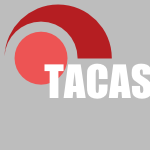 TACAS-2007-BolligKKL #design #game studies #learning #modelling #synthesis
TACAS-2007-BolligKKL #design #game studies #learning #modelling #synthesis- Replaying Play In and Play Out: Synthesis of Design Models from Scenarios by Learning (BB, JPK, CK, ML), pp. 435–450.
 TACAS-2007-HarelS #flexibility #source code
TACAS-2007-HarelS #flexibility #source code- Planned and Traversable Play-Out: A Flexible Method for Executing Scenario-Based Programs, (DH, IS), pp. 485–499.
 ICPC-2007-HeldalSS #case study #interactive #visualisation
ICPC-2007-HeldalSS #case study #interactive #visualisation- Scenario Explorer: Interactive Visualization of Use Cases (RH, JS, OS), pp. 241–252.
 ICPC-2007-JiangKRS #api #documentation
ICPC-2007-JiangKRS #api #documentation- Constructing Usage Scenarios for API Redocumentation (JJ, JK, AR, TS), pp. 259–264.
 WCRE-2007-SousaMUK #detection #execution
WCRE-2007-SousaMUK #detection #execution- Detecting Implied Scenarios from Execution Traces (FCdS, NCM, SU, JK), pp. 50–59.
 IFM-2007-AuSC #precise #specification
IFM-2007-AuSC #precise #specification- Precise Scenarios — A Customer-Friendly Foundation for Formal Specifications (OA, RS, JC), pp. 21–36.
 CHI-2007-LjungbladH
CHI-2007-LjungbladH- Transfer scenarios: grounding innovation with marginal practices (SL, LEH), pp. 737–746.
 HCI-AS-2007-LinKTKT #design #development #process #verification #visual notation
HCI-AS-2007-LinKTKT #design #development #process #verification #visual notation- Verification of Development of Scenarios Method and Visual Formats for Design Process (HL, MK, HT, HK, TT), pp. 1095–1101.
 HCI-AS-2007-PengKLC #approach #tablet
HCI-AS-2007-PengKLC #approach #tablet- The Practices of Scenario Observation Approach in Defining Medical Tablet PC Applications (CYP, WSK, YZL, WKC), pp. 518–524.
 HCI-AS-2007-SaC07a #detection #learning #ubiquitous
HCI-AS-2007-SaC07a #detection #learning #ubiquitous- Detecting Learning Difficulties on Ubiquitous Scenarios (MdS, LC), pp. 235–244.
 HCI-IDU-2007-DaimotoAMK #case study #research #safety
HCI-IDU-2007-DaimotoAMK #case study #research #safety- Application of Micro-Scenario Method (MSM) to User Research for the Motorcycle’s Informatization — A Case Study for the Information Support System for Safety (HD, SA, MM, MK), pp. 49–57.
 HCI-IDU-2007-Go #design
HCI-IDU-2007-Go #design- A Scenario-Based Design Method with Photo Diaries and Photo Essays (KG), pp. 88–97.
 HCI-IDU-2007-HuHLC
HCI-IDU-2007-HuHLC- The Practices of Scenario Study to Home Scenario Control (YHH, YTH, YZL, WKC), pp. 827–834.
 HCI-IDU-2007-KurosuGHK #collaboration #database
HCI-IDU-2007-KurosuGHK #collaboration #database- Micro-Scenario Database for Substantializing the Collaboration Between Human Science and Engineering (MK, KG, NH, HK), pp. 140–145.
 HCI-IDU-2007-LiangHC #approach #design #experience
HCI-IDU-2007-LiangHC #approach #design #experience- User Oriented Design to the Chinese Industries Scenario and Experience Innovation Design Approach for the Industrializing Countries in the Digital Technology Era (YZL, DHH, WKC), pp. 156–163.
 HCI-IDU-2007-OkamotoKGI #design #using
HCI-IDU-2007-OkamotoKGI #design #using- Participatory Design Using Scenarios in Different Cultures (MO, HK, IG, KI), pp. 223–231.
 HCI-IDU-2007-Shanghong #design
HCI-IDU-2007-Shanghong #design- Scenario-Based Installability Design (XS), pp. 283–288.
 HCI-IDU-2007-YuY #design
HCI-IDU-2007-YuY #design- Scenario-Based Product Design, a Real Case (DJY, HJY), pp. 325–330.
 HCI-IPT-2007-LeeKYL #community #smarttech
HCI-IPT-2007-LeeKYL #community #smarttech- A Feasibility Study of Sixth Sense Computing Scenarios in a Wearable Community (SL, HK, SY, GL), pp. 1155–1164.
 HIMI-MTT-2007-HuangLW #correlation #mining #multi
HIMI-MTT-2007-HuangLW #correlation #mining #multi- Mining Attack Correlation Scenarios Based on Multi-agent System (SH, ZL, LW), pp. 632–641.
 HIMI-MTT-2007-PangJCLZ #collaboration
HIMI-MTT-2007-PangJCLZ #collaboration- Collaborative Scenario Building: The Case of an “Advertainment” Portal (NLSP, GJ, SC, JL, XZ), pp. 153–162.
 ICEIS-SAIC-2007-KusterTZKCVBCFT #comparative #evaluation
ICEIS-SAIC-2007-KusterTZKCVBCFT #comparative #evaluation- Service Discovery with SWE-ET and DIANE — A Comparative Evaluation by Means of Solutions to a Common Scenario (UK, AT, MZ, BKR, DC, EDV, MB, SC, FMF, CT), pp. 430–437.
 ECMDA-FA-2007-OlsenO #model-to-text #traceability
ECMDA-FA-2007-OlsenO #model-to-text #traceability- Scenarios of Traceability in Model to Text Transformations (GKO, JO), pp. 144–156.
 MoDELS-2007-SmialekBNAS #case study
MoDELS-2007-SmialekBNAS #case study- Complementary Use Case Scenario Representations Based on Domain Vocabularies (MS, JB, WN, AA, TS), pp. 544–558.
 MoDELS-2007-SmialekBNAS #case study
MoDELS-2007-SmialekBNAS #case study- Complementary Use Case Scenario Representations Based on Domain Vocabularies (MS, JB, WN, AA, TS), pp. 544–558.
 RE-2007-Aoyama #requirements
RE-2007-Aoyama #requirements- Persona-Scenario-Goal Methodology for User-Centered Requirements Engineering (MA), pp. 185–194.
 RE-2007-BhatiaV #locality
RE-2007-BhatiaV #locality- Localisation and Requirement Engineering in Context to Indian Scenario (MPSB, AV), pp. 393–394.
 RE-2007-Kof #identification #named
RE-2007-Kof #identification #named- Scenarios: Identifying Missing Objects and Actions by Means of Computational Linguistics (LK), pp. 121–130.
 RE-2007-MaidenNKSG #requirements
RE-2007-MaidenNKSG #requirements- Exploring Scenario Forms and Ways of Use to Discover Requirements on Airports that Minimize Environmental Impact (NAMM, CN, SK, NS, PG), pp. 29–38.
 RE-2007-SeyffGGM #mobile #requirements
RE-2007-SeyffGGM #mobile #requirements- The Mobile Scenario Presenter: A Tool for in situ Requirements Discovery with Scenarios (NS, FG, PG, NAMM), pp. 365–366.
 ESEC-FSE-2007-AcharyaXPX #api #mining #partial order #source code #specification
ESEC-FSE-2007-AcharyaXPX #api #mining #partial order #source code #specification- Mining API patterns as partial orders from source code: from usage scenarios to specifications (MA, TX, JP, JX), pp. 25–34.
 ICSE-2007-UchitelBC #behaviour #synthesis
ICSE-2007-UchitelBC #behaviour #synthesis- Behaviour Model Synthesis from Properties and Scenarios (SU, GB, MC), pp. 34–43.
 MBT-2007-KollmannH #generative #multi
MBT-2007-KollmannH #generative #multi- Generating Scenarios by Multi-Object Checking (MK, YMH), pp. 61–72.
 ASE-2006-Hall #named #scalability
ASE-2006-Hall #named #scalability- LSS: A Tool for Large Scale Scenarios (RJH), pp. 349–350.
 DAC-2006-TanimotoYNH #realtime #using
DAC-2006-TanimotoYNH #realtime #using- A real time budgeting method for module-level-pipelined bus based system using bus scenarios (TT, SY, AN, TH), pp. 37–42.
 FoSSaCS-2006-BackesMPV #analysis #encryption
FoSSaCS-2006-BackesMPV #analysis #encryption- Symbolic and Cryptographic Analysis of the Secure WS-ReliableMessaging Scenario (MB, SM, BP, LV), pp. 428–445.
 CSMR-2006-SalahMAP #dynamic analysis #scalability
CSMR-2006-SalahMAP #dynamic analysis #scalability- Scenario-Driven Dynamic Analysis for Comprehending Large Software Systems (MS, SM, GA, MDP), pp. 71–80.
 ICSM-2006-ShenM #architecture #named
ICSM-2006-ShenM #architecture #named- ESDM — A Method for Developing Evolutionary Scenarios for Analysing the Impact of Historical Changes on Architectural Elements (YS, NHM), pp. 45–54.
 MSR-2006-YangR #architecture #evolution #mining
MSR-2006-YangR #architecture #evolution #mining- Scenarios for mining the software architecture evolution (YY, CR), pp. 10–13.
 SOFTVIS-2006-AlspaughTB #social #using #visualisation
SOFTVIS-2006-AlspaughTB #social #using #visualisation- Using social agents to visualize software scenarios (TAA, BT, EB), pp. 87–94.
 AdaEurope-2006-LiWQLYZZ #java #runtime #source code #specification #verification
AdaEurope-2006-LiWQLYZZ #java #runtime #source code #specification #verification- Runtime Verification of Java Programs for Scenario-Based Specifications (XL, LW, XQ, BL, JY, JZ, GZ), pp. 94–105.
 EDOC-2006-KuropkaBW #enterprise #framework #motivation #semantics
EDOC-2006-KuropkaBW #enterprise #framework #motivation #semantics- Semantic Enterprise Services Platform: Motivation, Potential, Functionality and Application Scenarios (DK, AB, MW), pp. 253–264.
 ICEIS-ISAS-2006-Ohnishi #generative
ICEIS-ISAS-2006-Ohnishi #generative- Supporting Methods of Generating Alternative Scenarios from a Normal Scenario (AO), pp. 110–117.
 SEKE-2006-ManaSSM #towards
SEKE-2006-ManaSSM #towards- Towards Secure Ambient Intelligence Scenarios (AM, FSC, DS, AM), pp. 386–391.
 RE-2006-BushN #requirements #research
RE-2006-BushN #requirements #research- Requirements Engineering Research in Some Future Worlds: An Exercise in Scenario Planning (DB, BN), p. 324.
 SAC-2006-AbbottBCVM #automation #forensics #recognition
SAC-2006-AbbottBCVM #automation #forensics #recognition- Automated recognition of event scenarios for digital forensics (JA, JB, AJC, OYdV, GMM), pp. 293–300.
 SAC-2006-MeoQFU #multi #query
SAC-2006-MeoQFU #multi #query- A multi-agent system for efficiently managing query answering in an e-government scenario (PDM, GQ, HF, DU), pp. 308–312.
 FSE-2006-DamasLL #state machine #synthesis
FSE-2006-DamasLL #state machine #synthesis- Scenarios, goals, and state machines: a win-win partnership for model synthesis (CD, BL, AvL), pp. 197–207.
 FSE-2006-MaozH #aspectj #compilation #multi
FSE-2006-MaozH #aspectj #compilation #multi- From multi-modal scenarios to code: compiling LSCs into aspectJ (SM, DH), pp. 219–230.
 SPL-BOOK-2006-BertolinoFGL #case study #product line #requirements #specification #testing
SPL-BOOK-2006-BertolinoFGL #case study #product line #requirements #specification #testing- Product Line Use Cases: Scenario-Based Specification and Testing of Requirements (AB, AF, SG, GL), pp. 425–445.
 SPL-BOOK-2006-BuhneHLP #requirements
SPL-BOOK-2006-BuhneHLP #requirements- Scenario-Based Application Requirements Engineering (SB, GH, KL, KP), pp. 161–194.
 SPL-BOOK-2006-RommesA #architecture #product line
SPL-BOOK-2006-RommesA #architecture #product line- A Scenario-Based Method for Software Product Line Architecting (ER, PA), pp. 3–52.
 SPL-BOOK-2006-Wesselius #product line
SPL-BOOK-2006-Wesselius #product line- Strategic Scenario-Based Valuation of Product Line Roadmaps (JHW), pp. 53–89.
 CAV-2006-Harel #aspect-oriented #game studies #source code #verification
CAV-2006-Harel #aspect-oriented #game studies #source code #verification- Playing with Verification, Planning and Aspects: Unusual Methods for Running Scenario-Based Programs (DH), pp. 3–4.
 FATES-RV-2006-SatpathyML #modelling #synthesis #testing
FATES-RV-2006-SatpathyML #modelling #synthesis #testing- Synthesis of Scenario Based Test Cases from B Models (MS, QAM, JL), pp. 133–147.
 WICSA-2005-TekinerdoganSA #analysis #architecture #reliability #using
WICSA-2005-TekinerdoganSA #analysis #architecture #reliability #using- Software Architecture Reliability Analysis Using Failure Scenarios (BT, HS, MA), pp. 203–204.
 DAC-2005-GheorghitaSBC #automation #detection #estimation
DAC-2005-GheorghitaSBC #automation #detection #estimation- Automatic scenario detection for improved WCET estimation (SVG, SS, TB, HC), pp. 101–104.
 VLDB-2005-SayyadianLDR #using
VLDB-2005-SayyadianLDR #using- Tuning Schema Matching Software using Synthetic Scenarios (MS, YL, AD, AR), pp. 994–1005.
 FASE-2005-RodriguesRU #component #concurrent #predict #reliability #using
FASE-2005-RodriguesRU #component #concurrent #predict #reliability #using- Using Scenarios to Predict the Reliability of Concurrent Component-Based Software Systems (GNR, DSR, SU), pp. 111–126.
 TACAS-2005-KuglerHPLB #logic #specification
TACAS-2005-KuglerHPLB #logic #specification- Temporal Logic for Scenario-Based Specifications (HK, DH, AP, YL, YB), pp. 445–460.
 ICSM-2005-SalahDMSV #named #reverse engineering #sequence
ICSM-2005-SalahDMSV #named #reverse engineering #sequence- Scenariographer: A Tool for Reverse Engineering Class Usage Scenarios from Method Invocation Sequences (MS, TD, SM, AS, FIV), pp. 155–164.
 IWPC-2005-HogganvikS #comprehension #on the #security
IWPC-2005-HogganvikS #comprehension #on the #security- On the Comprehension of Security Risk Scenarios (IH, KS), pp. 115–124.
 FM-2005-KatzK #specification #verification
FM-2005-KatzK #specification #verification- Verifying Scenario-Based Aspect Specifications (EK, SK), pp. 432–447.
 FM-2005-SunD #distributed #process #specification #synthesis
FM-2005-SunD #distributed #process #specification #synthesis- Synthesis of Distributed Processes from Scenario-Based Specifications (JS, JSD), pp. 415–431.
 IFM-2005-SenguptaC #framework #state machine
IFM-2005-SenguptaC #framework #state machine- An Integrated Framework for Scenarios and State Machines (BS, RC), pp. 366–385.
 ICEIS-v1-2005-SimonssonLJNGW #approach #enterprise #evaluation #top-down
ICEIS-v1-2005-SimonssonLJNGW #approach #enterprise #evaluation #top-down- Scenario-based Evaluation of Enterprise — a Top-Down Approach for Chief Information Officer Decision Making (MS, ÅL, PJ, LN, JG, OW), pp. 130–137.
 ICEIS-v2-2005-AhmedS #process
ICEIS-v2-2005-AhmedS #process- Scenario Management: Process and Support (MDA, DS), pp. 50–57.
 SEKE-2005-LungZ #analysis #architecture #combinator #design
SEKE-2005-LungZ #analysis #architecture #combinator #design- Application of Design Combinatorial Theory to Scenario-Based Software Architecture Analysis (CHL, MZ), pp. 418–423.
 MoDELS-2005-SmialekBNS #metamodelling #uml
MoDELS-2005-SmialekBNS #metamodelling #uml- Scenario Construction Tool Based on Extended UML Metamodel (MS, JB, WN, TS), pp. 414–429.
 MoDELS-2005-SmialekBNS #metamodelling #uml
MoDELS-2005-SmialekBNS #metamodelling #uml- Scenario Construction Tool Based on Extended UML Metamodel (MS, JB, WN, TS), pp. 414–429.
 RE-2005-Aoyama #embedded #requirements
RE-2005-Aoyama #embedded #requirements- Persona-and-Scenario Based Requirements Engineering for Software Embedded in Digital Consumer Products (MA), pp. 85–94.
 RE-2005-Some #case study #requirements #validation
RE-2005-Some #case study #requirements #validation- Use Cases based Requirements Validation with Scenarios (SSS), pp. 465–466.
 RE-2005-ToyamaO #rule-based #verification
RE-2005-ToyamaO #rule-based #verification- Rule-based Verification of Scenarios with Pre-conditions and Post-conditions (TT, AO), pp. 319–328.
 SAC-2005-BarrettEKMS #ad hoc #multi #network #probability #protocol
SAC-2005-BarrettEKMS #ad hoc #multi #network #probability #protocol- Probabilistic multi-path vs. deterministic single-path protocols for dynamic ad-hoc network scenarios (CLB, SE, LK, MVM, JPS), pp. 1166–1173.
 SAC-2005-LiuC #knowledge-based #query #retrieval
SAC-2005-LiuC #knowledge-based #query #retrieval- Knowledge-based query expansion to support scenario-specific retrieval of medical free text (ZL, WWC), pp. 1076–1083.
 ICSE-2005-LetierKMU #analysis #monitoring #requirements
ICSE-2005-LetierKMU #analysis #monitoring #requirements- Monitoring and control in scenario-based requirements analysis (EL, JK, JM, SU), pp. 382–391.
 ICSE-2005-MaidenR #case study #process #requirements
ICSE-2005-MaidenR #case study #process #requirements- Developing use cases and scenarios in the requirements process (NAMM, SR), pp. 561–570.
 AMOST-2005-AugustonMS #automation #behaviour #generative #modelling #testing
AMOST-2005-AugustonMS #automation #behaviour #generative #modelling #testing- Environment behavior models for scenario generation and testing automation (MA, JBM, MtS).
 WICSA-2004-IonitaAHOT #approach #architecture #cost analysis
WICSA-2004-IonitaAHOT #approach #architecture #cost analysis- A Scenario-Driven Approach for Value, Risk, and Cost Analysis in System Architecting for Innovation (MTI, PA, DKH, JHO, JJMT), pp. 277–280.
 CSCW-2004-HaynesPS #evaluation
CSCW-2004-HaynesPS #evaluation- Situating evaluation in scenarios of use (SRH, SP, ALS), pp. 92–101.
 ICEIS-v3-2004-MouratidisGM #design #information management #security #using
ICEIS-v3-2004-MouratidisGM #design #information management #security #using- Using Security Attack Scenarios to Analyse Security During Information Systems Design (HM, PG, GAM), pp. 10–17.
 ICPR-v4-2004-WallhoffZRP #using
ICPR-v4-2004-WallhoffZRP #using- Face Tracking in Meeting Room Scenarios Using Omnidirectional Views (FW, MZ, GR, IP), pp. 933–936.
 SEKE-2004-CorreaW #approach #specification #transaction #validation
SEKE-2004-CorreaW #approach #specification #transaction #validation- Specification and Validation of Transactional Business Software: An Approach Based on the Exploration of Concrete Scenarios (ALC, CMLW), pp. 294–299.
 SEKE-2004-Hobbs #design pattern #specification #using
SEKE-2004-Hobbs #design pattern #specification #using- Using A Scenario Specification Language to Add Context to Design Patterns (RLH), pp. 330–335.
 SEKE-2004-KhedriB #requirements
SEKE-2004-KhedriB #requirements- Requirements Scenarios Based System-Testing (RK, IB), pp. 252–257.
 SEKE-2004-PennaILO #development
SEKE-2004-PennaILO #development- A Methodology for Scenario Development (GDP, BI, ARL, SO), pp. 7–12.
 RE-2004-AraujoWK #aspect-oriented #modelling #requirements
RE-2004-AraujoWK #aspect-oriented #modelling #requirements- Modeling and Composing Scenario-Based Requirements with Aspects (JA, JW, DKK), pp. 58–67.
 RE-2004-UchitelCKM #animation #requirements #validation
RE-2004-UchitelCKM #animation #requirements #validation- Fluent-Based Animation: Exploiting the Relation between Goals and Scenarios for Requirements Validation (SU, RC, JK, JM), pp. 208–217.
 RE-2004-ZachosM #multi #named
RE-2004-ZachosM #multi #named- ART-SCENE: Enhancing Scenario Walkthroughs With Multi-Media Scenarios (KZ, NAMM), pp. 360–361.
 SAC-2004-CavalliM #automation #generative
SAC-2004-CavalliM #automation #generative- Automated test scenarios generation for an e-barter system (ARC, SM), pp. 795–799.
 FSE-2004-UchitelCKM #architecture #synthesis
FSE-2004-UchitelCKM #architecture #synthesis- System architecture: the context for scenario-based model synthesis (SU, RC, JK, JM), pp. 33–42.
 ICSE-2004-AlfonsoBKO #visual notation
ICSE-2004-AlfonsoBKO #visual notation- Visual Timed Event Scenarios (AA, VAB, NK, AO), pp. 168–177.
 SPLC-2004-AmericaHIOR #architecture #product line #variability
SPLC-2004-AmericaHIOR #architecture #product line #variability- Scenario-Based Decision Making for Architectural Variability in Product Families (PA, DKH, MTI, JHO, ER), pp. 284–303.
 CSL-2004-AmadioCDJ #bound #bytecode #functional #verification
CSL-2004-AmadioCDJ #bound #bytecode #functional #verification- A Functional Scenario for Bytecode Verification of Resource Bounds (RMA, SCG, SDZ, LJ), pp. 265–279.
 DATE-2003-IndrusiakLRG #configuration management #hardware #implementation #ubiquitous
DATE-2003-IndrusiakLRG #configuration management #hardware #implementation #ubiquitous- Ubiquitous Access to Reconfigurable Hardware: Application Scenarios and Implementation Issues (LSI, FL, RAdLR, MG), pp. 10940–10945.
 ICDAR-2003-DelalandreNTO #recognition #representation #xml
ICDAR-2003-DelalandreNTO #recognition #representation #xml- Symbols Recognition by Global-Local Structural Approaches, Based on the Scenarios Use, and with a XML Representation of Data (MD, SN, ÉT, JMO), pp. 1002–1006.
 FASE-2003-Muccini #branch #detection
FASE-2003-Muccini #branch #detection- Detecting Implied Scenarios Analyzing Non-local Branching Choices (HM), pp. 372–386.
 TACAS-2003-UchitelCKM #behaviour #named #tool support #using
TACAS-2003-UchitelCKM #behaviour #named #tool support #using- LTSA-MSC: Tool Support for Behaviour Model Elaboration Using Implied Scenarios (SU, RC, JK, JM), pp. 597–601.
 ICSM-2003-ObbinkA #architecture #towards
ICSM-2003-ObbinkA #architecture #towards- Towards Evergreen Architectures: On the usage of scenarios in system architecting (JHO, PA), p. 298–?.
 ICALP-2003-StoelingaV #automaton #probability #testing
ICALP-2003-StoelingaV #automaton #probability #testing- A Testing Scenario for Probabilistic Automata (MS, FWV), pp. 464–477.
 AGTIVE-2003-GeigerZ #graph transformation #testing
AGTIVE-2003-GeigerZ #graph transformation #testing- Transforming Graph Based Scenarios into Graph Transformation Based JUnit Tests (LG, AZ), pp. 61–74.
 CAiSE-2003-VassiliadisSGT #design #framework
CAiSE-2003-VassiliadisSGT #design #framework- A Framework for the Design of ETL Scenarios (PV, AS, PG, MT), pp. 520–535.
 ICEIS-v1-2003-GhomariD #approach #multi #petri net #towards
ICEIS-v1-2003-GhomariD #approach #multi #petri net #towards- Towards a Timed-Petri Net Based Approach for Multimedia Scenario Synchronization (AG, CD), pp. 267–272.
 ICEIS-v2-2003-DoderoDA #collaboration #design #evaluation #protocol
ICEIS-v2-2003-DoderoDA #collaboration #design #evaluation #protocol- Evaluation of an Agent-Mediated Collaborative Production Protocol in an Instructional Design Scenario (JMD, PD, IA), pp. 52–57.
 ICEIS-v4-2003-LopesO #distributed #using
ICEIS-v4-2003-LopesO #distributed #using- Application Scenarios for Distributed Management Using Snmp Expressions (RPL, JLO), pp. 49–54.
 RE-2003-AlspaughA #analysis #case study
RE-2003-AlspaughA #analysis #case study- Contrasting Use Case, Goal, and Scenario Analysis of the Euronet System (TAA, AIA), pp. 355–356.
 RE-2003-BushF #assessment #requirements #using
RE-2003-BushF #assessment #requirements #using- Requirements Stability Assessment Using Scenarios (DB, AF), pp. 23–32.
 RE-2003-MavinM #case study #experience #generative #requirements
RE-2003-MavinM #case study #experience #generative #requirements- Determining Socio-Technical Systems Requirements: Experiences with Generating and Walking through Scenarios (AM, NAMM), pp. 213–222.
 RE-2003-StufflebeamAA #named #requirements
RE-2003-StufflebeamAA #named #requirements- SMaRT — Scenario Management and Requirements Tool (WHS, AIA, TAA), p. 351.
 RE-2003-Sutcliffe #requirements
RE-2003-Sutcliffe #requirements- Scenario-Based Requirements Engineering (AGS), pp. 320–329.
 SAC-2003-Abdellatif-KaddourTW #testing
SAC-2003-Abdellatif-KaddourTW #testing- Property-Oriented Testing: A Strategy for Exploring Dangerous Scenarios (OAK, PTF, HW), pp. 1128–1134.
 ICSE-2003-WhittleSK #case study
ICSE-2003-WhittleSK #case study- From Scenarios to Code: An Air Traffic Control Case Study (JW, JS, RK), pp. 490–497.
 CAV-2003-GlusmanK #consistency #model checking #specification
CAV-2003-GlusmanK #consistency #model checking #specification- Model Checking Conformance with Scenario-Based Specifications (MG, SK), pp. 328–340.
 CBSE-2003-JongeMC #component #predict #runtime
CBSE-2003-JongeMC #component #predict #runtime- Scenario-Based Prediction of Run-time Resource Consumption in Component-Based Software Systems (MdJ, JM, MRVC), p. 4.
 IWPC-2002-WuHH #graph #using
IWPC-2002-WuHH #graph #using- Using Graph Patterns to Extract Scenarios (JW, AEH, RCH), pp. 239–247.
 CAiSE-2002-CaiY #approach #performance #requirements #using
CAiSE-2002-CaiY #approach #performance #requirements #using- Addressing Performance Requirements Using a Goal and Scenario-Oriented Approach (ZC, ESKY), pp. 706–710.
 CAiSE-2002-LiuY #approach #design #social
CAiSE-2002-LiuY #approach #design #social- Designing Web-Based Systems in Social Context: A Goal and Scenario Based Approach (LL, ESKY), pp. 37–51.
 KDD-2002-El-RamlySS #approach #behaviour #mining #runtime
KDD-2002-El-RamlySS #approach #behaviour #mining #runtime- From run-time behavior to usage scenarios: an interaction-pattern mining approach (MER, ES, PGS), pp. 315–324.
 RE-2002-Carroll #design
RE-2002-Carroll #design- Scenarios and Design Cognition (JMC), pp. 3–5.
 RE-2002-Ebert #product line #requirements
RE-2002-Ebert #product line #requirements- Requirements Management in a Product Line Scenario (CE), p. 123.
 RE-2002-SutcliffG #functional #requirements #validation
RE-2002-SutcliffG #functional #requirements #validation- Validating Functional System Requirements with Scenarios (AGS, AG), pp. 181–190.
 RE-2002-WooR #approach #automation #lightweight #relational #reuse #specification #using
RE-2002-WooR #approach #automation #lightweight #relational #reuse #specification #using- Reuse of Scenario Specifications Using an Automated Relational Learner: A Lightweight Approach (HGW, WNR), pp. 173–180.
 SAC-2002-SmithH #analysis #design #reliability
SAC-2002-SmithH #analysis #design #reliability- Augmenting descriptive scenario analysis for improvements in human reliability design (SPS, MDH), pp. 739–743.
 FSE-2002-UchitelKM #elicitation
FSE-2002-UchitelKM #elicitation- Negative scenarios for implied scenario elicitation (SU, JK, JM), pp. 109–118.
 ICSE-2002-UchitelSZ #algorithm #modelling #state machine #tool support
ICSE-2002-UchitelSZ #algorithm #modelling #state machine #tool support- Scenarios and state machines: models, algorithms, and tools (SU, TS, AZ), pp. 659–660.
 ITiCSE-2001-Vat #design #education #human-computer #synthesis
ITiCSE-2001-Vat #design #education #human-computer #synthesis- Teaching HCI with scenario-based design: the constructivist’s synthesis (KHV), pp. 9–12.
 FASE-2001-BordeleauC #design #on the #state machine
FASE-2001-BordeleauC #design #on the #state machine- On the Importance of Inter-scenario Relationships in Hierarchical State Machine Design (FB, JPC), pp. 156–170.
 AdaEurope-2001-Kuball #assessment
AdaEurope-2001-Kuball #assessment- Scenario-Based System Assessment (SK), pp. 241–252.
 SEKE-2001-BarrosWT #analysis #process #project management #reuse
SEKE-2001-BarrosWT #analysis #process #project management #reuse- Scenario Oriented Project Management Knowledge Reuse within a Risk Analysis Process (MdOB, CMLW, GHT), pp. 37–44.
 SEKE-2001-Kla #object-oriented #specification
SEKE-2001-Kla #object-oriented #specification- Semiautomatic extraction of Object-Oriented specifications form textual scenarios (RK), pp. 69–78.
 UML-2001-LettrariK #modelling #monitoring #realtime #testing #uml
UML-2001-LettrariK #modelling #monitoring #realtime #testing #uml- Scenario-Based Monitoring and Testing of Real-Time UML Models (ML, JK), pp. 317–328.
 GCSE-2001-BruijnV #architecture #evaluation #generative
GCSE-2001-BruijnV #architecture #evaluation #generative- Scenario-Based Generation and Evaluation of Software Architectures (HdB, HvV), pp. 128–139.
 RE-2001-AllenbyK #requirements #safety #using
RE-2001-AllenbyK #requirements #safety #using- Deriving Safety Requirements Using Scenarios (KA, TK), pp. 228–235.
 RE-2001-Galal #architecture
RE-2001-Galal #architecture- Scenario-Based Systems Architecting (GHG), pp. 318–319.
 RE-2001-RidaoDL #independence
RE-2001-RidaoDL #independence- Domain Independent Regularities in Scenarios (MR, JHD, JCSdPL), pp. 120–127.
 RE-2001-WatahikiS #approach
RE-2001-WatahikiS #approach- Scenario Patterns Based on Case Grammar Approach (KW, MS), pp. 300–301.
 ESEC-FSE-2001-UchitelKM #detection #sequence chart #specification
ESEC-FSE-2001-UchitelKM #detection #sequence chart #specification- Detecting implied scenarios in message sequence chart specifications (SU, JK, JM), pp. 74–82.
 ICSE-2001-Egyed #approach #traceability
ICSE-2001-Egyed #approach #traceability- A Scenario-Driven Approach to Traceability (AE), pp. 123–132.
 ICSE-2001-UchitelK #behaviour #modelling
ICSE-2001-UchitelK #behaviour #modelling- A Workbench for Synthesising Behaviour Models from Scenarios (SU, JK), pp. 188–197.
 HPDC-2001-HumphreyT #grid #security
HPDC-2001-HumphreyT #grid #security- Security Implications of Typical Grid Computing Usage Scenarios (MH, MRT), pp. 95–103.
 FASE-2000-Harel
FASE-2000-Harel- From Play-In Scenarios to Code: An Achievable Dream (DH), pp. 22–34.
 ICPR-v1-2000-AyersC #network #recognition #using #video
ICPR-v1-2000-AyersC #network #recognition #using #video- Scenario Recognition from Video Using a Hierarchy of Dynamic Belief Networks (DA, RC), pp. 1835–1838.
 TOOLS-PACIFIC-2000-Moisiadis #case study
TOOLS-PACIFIC-2000-Moisiadis #case study- Prioritising Use Cases and Scenarios (FM), pp. 108–119.
 GCSE-2000-Bruin #analysis #component #composition
GCSE-2000-Bruin #analysis #component #composition- Scenario-Based Analysis of Component Compositions (HdB), pp. 129–146.
 ICRE-2000-BreitmanL #evolution
ICRE-2000-BreitmanL #evolution- Scenario Evolution: A Closer View on Relationships (KB, JCSdPL), pp. 95–105.
 ICRE-2000-Glinz #approach #consistency #lightweight #modelling
ICRE-2000-Glinz #approach #consistency #lightweight #modelling- A Lightweight Approach to Consistency of Scenarios and Class Models (MG), p. 49–?.
 ICRE-2000-Moisiadis #evolution
ICRE-2000-Moisiadis #evolution- Prioritizing Scenario Evolution (FM), pp. 85–94.
 SAC-2000-ChenAZ #network
SAC-2000-ChenAZ #network- Broadcasting Under Network Ignorance Scenario (XC, HA, SZ), pp. 615–619.
 ICSE-2000-WhittleS #design #generative #statechart
ICSE-2000-WhittleS #design #generative #statechart- Generating statechart designs from scenarios (JW, JS), pp. 314–323.
 ASE-1999-BecksK #automation
ASE-1999-BecksK #automation- Automatically Structuring Textual Requirement Scenarios (AB, JK), pp. 271–274.
 HCI-EI-1999-Dzida #quality #requirements #testing
HCI-EI-1999-Dzida #quality #requirements #testing- Developing Scenario-Based Requirements and Testing them for Minimum Quality (WD), pp. 1205–1208.
 HCI-EI-1999-DzidaF #documentation #prototype #question
HCI-EI-1999-DzidaF #documentation #prototype #question- Documentation of Prototypes in Terms of Use Scenarios: Nice to Have or Indispensable? (WD, RF), pp. 905–908.
 HCI-EI-1999-Freitag #prototype #requirements #usability
HCI-EI-1999-Freitag #prototype #requirements #usability- The Symbiosis of Scenarios and Prototypes in Usability Requirements Engineering (RF), pp. 1209–1212.
 CAiSE-1999-RalyteRP
CAiSE-1999-RalyteRP- Method Enhancement with Scenario Based Techniques (JR, CR, VP), pp. 103–118.
 RE-1999-AlspaughABM
RE-1999-AlspaughABM- An Integrated Scenario Management Strategy (TAA, AIA, TB, BWM), pp. 142–149.
 RE-1999-ElkoutbiKK #generative #prototype #user interface
RE-1999-ElkoutbiKK #generative #prototype #user interface- Generating User Interface Prototypes from Scenarios (ME, IK, RKK), p. 150–?.
 RE-1999-HaumerJPH #approach #past present future
RE-1999-HaumerJPH #approach #past present future- Bridging the Gap Between Past and Future in RE: A Scenario-Based Approach (PH, MJ, KP, PH), pp. 66–73.
 RE-1999-Jarke #requirements
RE-1999-Jarke #requirements- Cooperative Requirements Engineering with Scenarios (MJ), p. 111–?.
 RE-1999-RollandGK #experience #requirements
RE-1999-RollandGK #experience #requirements- Experience with Goal-Scenario Coupling in Requirements Engineering (CR, GG, RK), p. 74–?.
 ASE-1998-Hall #generative #modelling
ASE-1998-Hall #generative #modelling- Explanation-based Scenario Generation for Reactive System Models (RJH), pp. 115–124.
 TACAS-1998-Ben-AbdallahL #concurrent #design #named
TACAS-1998-Ben-AbdallahL #concurrent #design #named- MESA: Support for Scenario-Based Design of Concurrent Systems (HBA, SL), pp. 118–135.
 CHI-1998-ChinR #collaboration #design #evolution #learning #staged
CHI-1998-ChinR #collaboration #design #evolution #learning #staged- Progressive Design: Staged Evolution of Scenarios in the Design of a Collaborative Science Learning Environment (GCJ, MBR), pp. 611–618.
 CAiSE-1998-RollandPR #reuse #specification
CAiSE-1998-RollandPR #reuse #specification- Specifying the Reuse Context of Scenario Method Chunks (CR, VP, JR), pp. 191–218.
 TOOLS-ASIA-1998-CheungCC #interactive #petri net
TOOLS-ASIA-1998-CheungCC #interactive #petri net- Deriving Scenarios Of Object Interaction Through Petri Net (KSC, KOC, TYC), p. 104–?.
 ICRE-1998-BreitmanL #evolution #framework
ICRE-1998-BreitmanL #evolution #framework- A Framework for Scenario Evolution (KB, JCSdPL), pp. 214–221.
 ICRE-1998-KaindlKK #case study #functional #requirements #using
ICRE-1998-KaindlKK #case study #functional #requirements #using- A Case Study of Decomposing Functional Requirements Using Scenarios (HK, SK, RK), pp. 156–163.
 ICRE-1998-MaidenMMR #generative #named
ICRE-1998-MaidenMMR #generative #named- CREWS-SAVRE: Systematic Scenario Generation and Use (NAMM, SM, KM, MR), pp. 148–155.
 ICRE-1998-WeidenhauptPJH #development
ICRE-1998-WeidenhauptPJH #development- Scenario Usage in System Development: A Report on Current Practice (KW, KP, MJ, PH), p. 222–?.
 REFSQ-1998-AchourRS #quality
REFSQ-1998-AchourRS #quality- A Proposal for Improving the Quality of the Organisation of Scenarios Collections (CBA, CR, CS), pp. 33–45.
 REFSQ-1998-RegnellR #requirements #testing #verification
REFSQ-1998-RegnellR #requirements #testing #verification- Combining Scenario-based Requirements with Static Verification and Dynamic Testing (BR, PR), pp. 195–206.
 REFSQ-1998-SutcliffeM #analysis #non-functional #requirements
REFSQ-1998-SutcliffeM #analysis #non-functional #requirements- Scenario-based Analysis of Non-Functional Requirements (AGS, SM), pp. 219–233.
 SAC-1998-VazirgiannisSTH #interactive #modelling #multi
SAC-1998-VazirgiannisSTH #interactive #modelling #multi- Interactive multimedia scenario: modeling rendering (MV, IS, MT, MH), pp. 462–470.
 ICDAR-1997-BapstZI #adaptation #documentation #recognition
ICDAR-1997-BapstZI #adaptation #documentation #recognition- A Scenario Model Advocating User-Driven Adaptive Document Recognition Systems (FB, AWZ, RI), pp. 745–748.
 WCRE-1997-WiggertsBF #identification #legacy
WCRE-1997-WiggertsBF #identification #legacy- Scenarios for the Identification of Objects in Legacy Systems (TW, HB, EF), pp. 24–32.
 CHI-1997-ChinRC #analysis #development #requirements
CHI-1997-ChinRC #analysis #development #requirements- Participatory Analysis: Shared Development of Requirements from Scenarios (GCJ, MBR, JMC), pp. 162–169.
 CAiSE-1997-FilippidouL #approach #requirements #using #validation
CAiSE-1997-FilippidouL #approach #requirements #using #validation- Using Scenarios to Validate Requirements in a Plausibility Centred Approach (DF, PL), pp. 47–60.
 RE-1997-LeiteRBMKHO97a #requirements
RE-1997-LeiteRBMKHO97a #requirements- Enhancing a Requirements Baseline with Scenarios (JCSdPL, GR, FB, VM, GNK, GDSH, AO), pp. 44–53.
 RE-1997-Sutcliffe97a #requirements
RE-1997-Sutcliffe97a #requirements- Exploring Scenarios in Requirements Engineering (AGS), p. 180–?.
 ESEC-FSE-1997-DesharnaisFKM #integration
ESEC-FSE-1997-DesharnaisFKM #integration- Integration of Sequential Scenarios (JD, MF, RK, AM), pp. 310–326.
 ICSE-1996-KoskimiesM #diagrams #named #object-oriented #source code #using
ICSE-1996-KoskimiesM #diagrams #named #object-oriented #source code #using- Scene: Using Scenario Diagrams and Active Text for Illustrating Object-Oriented Programs (KK, HM), pp. 366–375.
 SEKE-1995-LaliotiT #requirements #specification #validation #visual notation
SEKE-1995-LaliotiT #requirements #specification #validation #visual notation- Visual Scenarios for Validation of Requirements Specification (VL, BT), pp. 114–116.
 RE-1995-GoughFHR #case study #hypermedia #industrial #named
RE-1995-GoughFHR #case study #hypermedia #industrial #named- Scenarios — an industrial case study and hypermedia enhancements (PAG, FTF, SAH, SJR), pp. 10–17.
 ESEC-1995-Glinz #formal method
ESEC-1995-Glinz #formal method- An Integrated Formal Model of Scenarios Based on Statecharts (MG), pp. 254–271.
 CSEE-1994-CallissC #education #maintenance
CSEE-1994-CallissC #education #maintenance- Suggested Scenarios of Software Maintenance Education (FWC, DTC), pp. 329–340.
 CSEE-1994-Epstein #education #re-engineering
CSEE-1994-Epstein #education #re-engineering- The Use of Computer Ethics Scenarios in Software Engineering Education: The Case of the Killer Robot (RGE), pp. 429–440.
 CAiSE-1994-AntonMP #analysis #composition #process #re-engineering
CAiSE-1994-AntonMP #analysis #composition #process #re-engineering- Goal Decomposition and Scenario Analysis in Business Process Reengineering (AIA, WMM, CP), pp. 94–104.
 CAiSE-1994-SwedeV #consistency #development #empirical
CAiSE-1994-SwedeV #consistency #development #empirical- Consistent Development: Results of a First Empirical Study on the Relation Between Project Scenario and Success (VvS, HvV), pp. 80–93.
 OOPSLA-1994-RobertsonCMRAK #design #learning #named #object-oriented #self
OOPSLA-1994-RobertsonCMRAK #design #learning #named #object-oriented #self- ODE: A Self-Guided, Scenario-Based Learning Environment for Object-Oriented Design Principles (SPR, JMC, RLM, MBR, SRA, JKB), pp. 51–64.
 SAC-1994-Foster #analysis #education #named #using
SAC-1994-Foster #analysis #education #named #using- FRA: using a goal-based scenario to teach financial statement analysis (DAF), pp. 568–572.
 KBSE-1993-Hall #rule-based #validation
KBSE-1993-Hall #rule-based #validation- Validation of Rule-based Reactive Systems by Sound Scenario Generalization (RJH), p. 8.
 HT-1993-HaakeKS #hypermedia #video
HT-1993-HaakeKS #hypermedia #video- The SEPIA Hypermedia System as Part of the POLIKOM Telecooperation Scenario (Video) (JMH, TK, NAS), pp. 235–237.
 HCI-SHI-1993-Kaddah #development #interactive #prototype #user interface
HCI-SHI-1993-Kaddah #development #interactive #prototype #user interface- Interactive Scenarios for the Development of a User Interface Prototype (MMK), pp. 128–133.
 RE-1993-AndersonD #requirements #using
RE-1993-AndersonD #requirements #using- Using scenarios in deficiency-driven requirements engineering (JSA, BD), pp. 134–141.
 ICLP-1993-PereiraA #reasoning #semantics
ICLP-1993-PereiraA #reasoning #semantics- Optative Reasoning with Scenario Semantics (LMP, JJA), pp. 601–615.
 HT-ECHT-1992-OgawaTTH #design #hypermedia
HT-ECHT-1992-OgawaTTH #design #hypermedia- Design Strategies for Scenario-Based Hypermedia: Description of its Structure, Dynamics, and Style (RO, ET, DT, KH), pp. 71–80.
 ML-1992-Niquil #generative
ML-1992-Niquil #generative- Guiding Example Acquisition by Generating Scenarios (YN), pp. 348–354.
 LICS-1992-Sangiorgi #concurrent #lazy evaluation #λ-calculus
LICS-1992-Sangiorgi #concurrent #lazy evaluation #λ-calculus- The Lazy λ Calculus in a Concurrency Scenario (Extended Abstract) (DS), pp. 102–109.
 CHI-1991-HammondBCHMY #design #matrix #modelling
CHI-1991-HammondBCHMY #design #matrix #modelling- Modelling user, system design: results of a scenarios matrix exercise (NH, PJB, JC, MDH, AM, RMY), pp. 377–380.
 CAiSE-1991-Wille #industrial
CAiSE-1991-Wille #industrial- The Information Industry Scenario in Year 2000 (GEW), pp. 1–4.
 ECHT-1990-OgawaHK #hypermedia
ECHT-1990-OgawaHK #hypermedia- Scenario-Based Hypermedia: A Model and a System (RO, HH, AK), pp. 38–51.
 CHI-1990-Campbell #analysis #programming #smalltalk
CHI-1990-Campbell #analysis #programming #smalltalk- Developmental scenario analysis of Smalltalk programming (RLC), pp. 269–276.
 WICSA-2015-LiLA #architecture #identification #technical debt
WICSA-2015-LiLA #architecture #identification #technical debt CASE-2015-AndersenDBH #architecture #flexibility #performance #reuse
CASE-2015-AndersenDBH #architecture #flexibility #performance #reuse FASE-2015-BrennerGS #distributed #on the fly #specification #synthesis
FASE-2015-BrennerGS #distributed #on the fly #specification #synthesis FASE-2015-MacedoCG
FASE-2015-MacedoCG ICSME-2015-KasubuchiMYO #effectiveness #empirical #evaluation #fault #repository
ICSME-2015-KasubuchiMYO #effectiveness #empirical #evaluation #fault #repository MSR-2015-VasquezWBMP #android #execution #generative #mining
MSR-2015-VasquezWBMP #android #execution #generative #mining DHM-EH-2015-TianLYJCS #analysis #scalability #video
DHM-EH-2015-TianLYJCS #analysis #scalability #video DUXU-DD-2015-MichailidouHL #how
DUXU-DD-2015-MichailidouHL #how DUXU-DD-2015-OliveiraMMM #analysis #behaviour #design
DUXU-DD-2015-OliveiraMMM #analysis #behaviour #design DUXU-DD-2015-RenziF #delphi #human-computer
DUXU-DD-2015-RenziF #delphi #human-computer HCI-IT-2015-DibitontoM #automation #performance
HCI-IT-2015-DibitontoM #automation #performance ICEIS-v2-2015-SarmientoALS #modelling #petri net
ICEIS-v2-2015-SarmientoALS #modelling #petri net ICEIS-v2-2015-SarsharNR #case study #comparison #smarttech
ICEIS-v2-2015-SarsharNR #case study #comparison #smarttech SEKE-2015-ChenZWQJW #api #mining #protocol
SEKE-2015-ChenZWQJW #api #mining #protocol SEKE-2015-LongoV #diagrams #interactive
SEKE-2015-LongoV #diagrams #interactive MoDELS-2015-MannaSG #combinator #specification #testing
MoDELS-2015-MannaSG #combinator #specification #testing SAC-2015-DionisisCP #adaptation #execution #feedback #framework #hybrid #monitoring #using
SAC-2015-DionisisCP #adaptation #execution #feedback #framework #hybrid #monitoring #using SAC-2015-SousaS #domain-specific language #simulation #tool support
SAC-2015-SousaS #domain-specific language #simulation #tool support ESEC-FSE-2015-GreenyerHMB #analysis #re-engineering #requirements
ESEC-FSE-2015-GreenyerHMB #analysis #re-engineering #requirements SPLC-2015-CordyDGGH #product line #specification
SPLC-2015-CordyDGGH #product line #specification ECSA-2014-KochHD #generative #requirements #specification
ECSA-2014-KochHD #generative #requirements #specification WICSA-2014-KrkaM #component
WICSA-2014-KrkaM #component CASE-2014-LongLXJ #distributed #probability
CASE-2014-LongLXJ #distributed #probability DATE-2014-TsaiCCC #3d #configuration management #memory management #multi
DATE-2014-TsaiCCC #3d #configuration management #memory management #multi FASE-2014-CohenM #analysis #configuration management #semantics #specification
FASE-2014-CohenM #analysis #configuration management #semantics #specification FASE-2014-LanduytJ #architecture #requirements
FASE-2014-LanduytJ #architecture #requirements IFM-2014-KordyPS #framework #probability #security
IFM-2014-KordyPS #framework #probability #security GT-VMT-2014-BrennerGHLST #case study #realtime #sequence #testing #validation
GT-VMT-2014-BrennerGHLST #case study #realtime #sequence #testing #validation CHI-2014-PanSS #interactive #trust
CHI-2014-PanSS #interactive #trust DUXU-DI-2014-FigueiredoPNMTTAF #industrial #navigation #scalability
DUXU-DI-2014-FigueiredoPNMTTAF #industrial #navigation #scalability DUXU-ELAS-2014-Chunpir0B #comprehension #using
DUXU-ELAS-2014-Chunpir0B #comprehension #using DUXU-TMT-2014-SchreppHT #evaluation #experience #user interface
DUXU-TMT-2014-SchreppHT #evaluation #experience #user interface HCI-AS-2014-DiasDH #fuzzy #interactive #modelling #quality #using
HCI-AS-2014-DiasDH #fuzzy #interactive #modelling #quality #using ICEIS-v2-2014-HoosGKM #analysis #framework #identification #mobile #process
ICEIS-v2-2014-HoosGKM #analysis #framework #identification #mobile #process ICEIS-v2-2014-MaretLL #ad hoc #community #semantics #web
ICEIS-v2-2014-MaretLL #ad hoc #community #semantics #web ICPR-2014-KhoshrouCT #learning #multi #video
ICPR-2014-KhoshrouCT #learning #multi #video PPDP-J-2012-LagoP14 #call-by #dependent type #linear
PPDP-J-2012-LagoP14 #call-by #dependent type #linear RE-2014-Ferreira #evolution #requirements
RE-2014-Ferreira #evolution #requirements SAC-2014-GaubatzHZS #collaboration #constraints #documentation #editing #realtime #web
SAC-2014-GaubatzHZS #collaboration #constraints #documentation #editing #realtime #web SAC-2014-RighiCGFAG #transaction
SAC-2014-RighiCGFAG #transaction ASE-2013-FahlandLM #mining
ASE-2013-FahlandLM #mining CASE-2013-ParisioMVJ #approach #predict
CASE-2013-ParisioMVJ #approach #predict DAC-2013-QuanP #algorithm #runtime
DAC-2013-QuanP #algorithm #runtime FASE-2013-AbdallahGHJ #constraints #optimisation
FASE-2013-AbdallahGHJ #constraints #optimisation ICSM-2013-LabicheKM #analysis #diagrams
ICSM-2013-LabicheKM #analysis #diagrams GT-VMT-2013-GreenyerBM #diagrams #sequence chart #specification
GT-VMT-2013-GreenyerBM #diagrams #sequence chart #specification CHI-2013-BauerK #design #named
CHI-2013-BauerK #design #named CHI-2013-KusanoNO #design #interactive #user interface
CHI-2013-KusanoNO #design #interactive #user interface DHM-SET-2013-LauterbachS #evaluation #implementation #interactive
DHM-SET-2013-LauterbachS #evaluation #implementation #interactive DUXU-NTE-2013-Gyoda #ad hoc #analysis #communication #evaluation #network #performance
DUXU-NTE-2013-Gyoda #ad hoc #analysis #communication #evaluation #network #performance HCI-AMTE-2013-UedaGTHYY #design #experience
HCI-AMTE-2013-UedaGTHYY #design #experience HIMI-LCCB-2013-BraunerRGSZ
HIMI-LCCB-2013-BraunerRGSZ KDIR-KMIS-2013-MawasC #design #game studies
KDIR-KMIS-2013-MawasC #design #game studies SEKE-2013-Lacanienta0TO #approach #generative #knowledge-based #web
SEKE-2013-Lacanienta0TO #approach #generative #knowledge-based #web ICMT-2013-CuadradoL #challenge #model transformation #streaming
ICMT-2013-CuadradoL #challenge #model transformation #streaming MoDELS-2013-GreenyerK #composition #specification #synthesis
MoDELS-2013-GreenyerK #composition #specification #synthesis MoDELS-2013-GreenyerK #composition #specification #synthesis
MoDELS-2013-GreenyerK #composition #specification #synthesis ER-BR-2013-GuedesSC #approach #product line
ER-BR-2013-GuedesSC #approach #product line REFSQ-2013-BouillonMP #bibliography #requirements #traceability
REFSQ-2013-BouillonMP #bibliography #requirements #traceability SAC-2013-AbdallahHA #approach #design #quantifier
SAC-2013-AbdallahHA #approach #design #quantifier SAC-2013-CouceiroPR #architecture
SAC-2013-CouceiroPR #architecture SAC-2013-DionisisCP #adaptation #exception #framework
SAC-2013-DionisisCP #adaptation #exception #framework ESEC-FSE-2013-GreenyerBCHG #incremental #product line #specification
ESEC-FSE-2013-GreenyerBCHG #incremental #product line #specification ICSE-2013-AlrajehRLMMN
ICSE-2013-AlrajehRLMMN ICSE-2013-MaozS #specification
ICSE-2013-MaozS #specification ICSE-2013-NelsonSDFK #named
ICSE-2013-NelsonSDFK #named ICST-2013-IchidaSO #testing
ICST-2013-IchidaSO #testing WICSA-ECSA-2012-LanduytTJ #architecture #requirements
WICSA-ECSA-2012-LanduytTJ #architecture #requirements DATE-2012-TheelenKW #data flow #model checking
DATE-2012-TheelenKW #data flow #model checking DATE-2012-WanK #embedded #monitoring
DATE-2012-WanK #embedded #monitoring DATE-2012-YangGBSC #game studies #graph #policy #resource management
DATE-2012-YangGBSC #game studies #graph #policy #resource management DATE-2012-ZimmermannBR #analysis #multi #power management
DATE-2012-ZimmermannBR #analysis #multi #power management ITiCSE-2012-GordonMM #programming
ITiCSE-2012-GordonMM #programming FASE-2012-AlrajehKRU #learning #satisfiability #specification
FASE-2012-AlrajehKRU #learning #satisfiability #specification WRLA-2012-HillsKV #program analysis #rascal
WRLA-2012-HillsKV #program analysis #rascal CSMR-2012-Villavicencio #maintenance #refactoring
CSMR-2012-Villavicencio #maintenance #refactoring ICEIS-v1-2012-LambeckSAG #concept #enterprise #realtime
ICEIS-v1-2012-LambeckSAG #concept #enterprise #realtime ICEIS-v3-2012-CansadoVS #analysis #architecture #enterprise #multi #using
ICEIS-v3-2012-CansadoVS #analysis #architecture #enterprise #multi #using SEKE-2012-CostaCORSZ #generative #modelling #performance #testing
SEKE-2012-CostaCORSZ #generative #modelling #performance #testing SEKE-2012-GuedesSCSDS #named #product line
SEKE-2012-GuedesSCSDS #named #product line MoDELS-2012-MaozS #semantics #synthesis
MoDELS-2012-MaozS #semantics #synthesis MoDELS-2012-MaozS #semantics #synthesis
MoDELS-2012-MaozS #semantics #synthesis PPDP-2012-LagoP #call-by #dependent type #linear
PPDP-2012-LagoP #call-by #dependent type #linear RE-2012-GreenyerSCH #consistency #performance #product line #specification
RE-2012-GreenyerSCH #consistency #performance #product line #specification SAC-2012-FariaBGC #algorithm #clustering #data type
SAC-2012-FariaBGC #algorithm #clustering #data type FSE-2012-XuCBB #design #video
FSE-2012-XuCBB #design #video TAP-2012-BroschEGKSTWW #diagrams #testing #towards #uml
TAP-2012-BroschEGKSTWW #diagrams #testing #towards #uml WICSA-2011-TsakirisKM #case study #evaluation #hybrid #industrial #plugin #quality
WICSA-2011-TsakirisKM #case study #evaluation #hybrid #industrial #plugin #quality ICDAR-2011-AtanasiuLV #novel #retrieval #using
ICDAR-2011-AtanasiuLV #novel #retrieval #using ICDAR-2011-ClausnerPA11a #analysis #documentation #evaluation #layout #performance
ICDAR-2011-ClausnerPA11a #analysis #documentation #evaluation #layout #performance SIGMOD-2011-KennedyLLSN #enterprise #fuzzy #nondeterminism #parametricity
SIGMOD-2011-KennedyLLSN #enterprise #fuzzy #nondeterminism #parametricity VLDB-2011-JungHFR #database
VLDB-2011-JungHFR #database ICPC-2011-EitanGHMW #comprehension #on the #source code #visualisation
ICPC-2011-EitanGHMW #comprehension #on the #source code #visualisation SCAM-2011-SfayhiS #analysis #interactive #visualisation #what
SCAM-2011-SfayhiS #analysis #interactive #visualisation #what DUXU-v1-2011-BjorndalRM #industrial #lessons learnt #requirements #specification #using
DUXU-v1-2011-BjorndalRM #industrial #lessons learnt #requirements #specification #using DUXU-v1-2011-Hsu11a #approach #design #education #industrial
DUXU-v1-2011-Hsu11a #approach #design #education #industrial DUXU-v2-2011-AgnerTF #usability
DUXU-v2-2011-AgnerTF #usability HCI-DDA-2011-KaelberM #analysis
HCI-DDA-2011-KaelberM #analysis HCI-DDA-2011-VallsDL
HCI-DDA-2011-VallsDL HCI-ITE-2011-MorieCB #case study #using
HCI-ITE-2011-MorieCB #case study #using HCI-UA-2011-KanekoN #evaluation #simulation
HCI-UA-2011-KanekoN #evaluation #simulation HIMI-v1-2011-LoudenFMDS #information management #user interface
HIMI-v1-2011-LoudenFMDS #information management #user interface HIMI-v2-2011-PohlML #hybrid #learning #standard
HIMI-v2-2011-PohlML #hybrid #learning #standard ICEIS-v2-2011-DingL #database #design #security
ICEIS-v2-2011-DingL #database #design #security SEKE-2011-FaureFHUV #execution #ubiquitous
SEKE-2011-FaureFHUV #execution #ubiquitous BX-2011-Kindler #concept #graph grammar #implementation
BX-2011-Kindler #concept #graph grammar #implementation ESEC-FSE-2011-Ben-DavidCGU #logic #named #specification
ESEC-FSE-2011-Ben-DavidCGU #logic #named #specification CAV-2011-CimattiMT #automaton #hybrid #performance #verification
CAV-2011-CimattiMT #automaton #hybrid #performance #verification ECSA-2010-ReijonenKH #architecture #case study #experience
ECSA-2010-ReijonenKH #architecture #case study #experience ASE-2010-HarelMSB #named #programming #towards
ASE-2010-HarelMSB #named #programming #towards ASE-2010-LoM #mining #specification
ASE-2010-LoM #mining #specification DATE-2010-LarsenLNP #analysis #realtime #synthesis #using
DATE-2010-LarsenLNP #analysis #realtime #synthesis #using DATE-2010-TraubSKB #network
DATE-2010-TraubSKB #network SEFM-2010-DanHC
SEFM-2010-DanHC ICEIS-DISI-2010-NikitinTL #framework #industrial #named #towards
ICEIS-DISI-2010-NikitinTL #framework #industrial #named #towards ICEIS-DISI-2010-SunyaevKDK #framework #health
ICEIS-DISI-2010-SunyaevKDK #framework #health ICPR-2010-KaferHWKR #predict #recognition
ICPR-2010-KaferHWKR #predict #recognition ICPR-2010-SaninSL #robust
ICPR-2010-SaninSL #robust SEKE-2010-MoshirpourMF #behaviour #detection #distributed #specification #using
SEKE-2010-MoshirpourMF #behaviour #detection #distributed #specification #using REFSQ-2010-SikoraDP #abstraction #consistency #multi #specification
REFSQ-2010-SikoraDP #abstraction #consistency #multi #specification SAC-2010-HayashiB #comprehension
SAC-2010-HayashiB #comprehension SAC-2010-PenimA #identification #modelling
SAC-2010-PenimA #identification #modelling ICSE-2010-DoanLMK #mining #named #specification
ICSE-2010-DoanLMK #mining #named #specification ICSE-2010-Sunter
ICSE-2010-Sunter ICTSS-2010-UlrichAHB #implementation
ICTSS-2010-UlrichAHB #implementation WICSA-ECSA-2009-KuhnMKSBT #aspect-oriented #performance
WICSA-ECSA-2009-KuhnMKSBT #aspect-oriented #performance ASE-2009-LoM #mining #specification
ASE-2009-LoM #mining #specification ICPC-2009-SatoshiII #interactive #named #visualisation
ICPC-2009-SatoshiII #interactive #named #visualisation FM-2009-LarsenLNP #realtime #requirements #verification
FM-2009-LarsenLNP #realtime #requirements #verification SEFM-2009-BotaschanjanH #integration
SEFM-2009-BotaschanjanH #integration SEFM-2009-ChandrasekaranM #component #concurrent #coordination #specification
SEFM-2009-ChandrasekaranM #component #concurrent #coordination #specification DHM-2009-MobusEGZ #empirical #modelling #probability
DHM-2009-MobusEGZ #empirical #modelling #probability HCD-2009-ChuangO #correlation #design #mobile #using
HCD-2009-ChuangO #correlation #design #mobile #using HCD-2009-Go #design #question #usability #what
HCD-2009-Go #design #question #usability #what HCD-2009-HsuC #database
HCD-2009-HsuC #database HCD-2009-Varsaluoma #evaluation #heuristic #mobile
HCD-2009-Varsaluoma #evaluation #heuristic #mobile HCD-2009-YanagidaUGTHY #design
HCD-2009-YanagidaUGTHY #design HCI-AUII-2009-IbenWK #feedback #smarttech #visual notation
HCI-AUII-2009-IbenWK #feedback #smarttech #visual notation HCI-NIMT-2009-BannatGRRRW #industrial #multimodal
HCI-NIMT-2009-BannatGRRRW #industrial #multimodal HCI-NT-2009-MatsuoY #3d #named #visualisation
HCI-NT-2009-MatsuoY #3d #named #visualisation HIMI-DIE-2009-AnggreeniV #adaptation #design #framework
HIMI-DIE-2009-AnggreeniV #adaptation #design #framework HIMI-DIE-2009-LeeCW #design #evaluation #experience #interface
HIMI-DIE-2009-LeeCW #design #evaluation #experience #interface HIMI-II-2009-SawaragiIHN #approach #identification #using
HIMI-II-2009-SawaragiIHN #approach #identification #using IDGD-2009-SwansonSG #framework #using
IDGD-2009-SwansonSG #framework #using VISSOFT-2009-HassaineDSP #analysis #generative #maintenance #visualisation
VISSOFT-2009-HassaineDSP #analysis #generative #maintenance #visualisation ICEIS-HCI-2009-GarciaDCBSS #design
ICEIS-HCI-2009-GarciaDCBSS #design ICEIS-ISAS-2009-ArmenterosMMS #communication #dependence #prototype #security
ICEIS-ISAS-2009-ArmenterosMMS #communication #dependence #prototype #security ICEIS-J-2009-FurtadoSC #design
ICEIS-J-2009-FurtadoSC #design KMIS-2009-DevedzicJPN #collaboration #learning #research
KMIS-2009-DevedzicJPN #collaboration #learning #research KMIS-2009-KivijarviPT
KMIS-2009-KivijarviPT SEKE-2009-HamouiHUV #component #specification
SEKE-2009-HamouiHUV #component #specification MoDELS-2009-Maoz #modelling #polymorphism #semantics #specification
MoDELS-2009-Maoz #modelling #polymorphism #semantics #specification MoDELS-2009-MussbacherAW #aspect-oriented #modelling
MoDELS-2009-MussbacherAW #aspect-oriented #modelling MoDELS-2009-Maoz #modelling #polymorphism #semantics #specification
MoDELS-2009-Maoz #modelling #polymorphism #semantics #specification MoDELS-2009-MussbacherAW #aspect-oriented #modelling
MoDELS-2009-MussbacherAW #aspect-oriented #modelling RE-2009-MussbacherGA #analysis #modelling
RE-2009-MussbacherGA #analysis #modelling RE-2009-MussbacherWA #aspect-oriented #detection #interactive #semantics
RE-2009-MussbacherWA #aspect-oriented #detection #interactive #semantics REFSQ-2009-SeyffGMG #case study #experience #requirements
REFSQ-2009-SeyffGMG #case study #experience #requirements SAC-2009-MirallesLE #adaptation #multi #peer-to-peer
SAC-2009-MirallesLE #adaptation #multi #peer-to-peer SAC-2009-TimotheouL #communication #nondeterminism
SAC-2009-TimotheouL #communication #nondeterminism ICSE-2009-HenklerGHSAEHLSG #behaviour #realtime #synthesis
ICSE-2009-HenklerGHSAEHLSG #behaviour #realtime #synthesis CGO-2009-MarsH #framework #online #optimisation
CGO-2009-MarsH #framework #online #optimisation CAV-2009-PanBL #named #specification
CAV-2009-PanBL #named #specification MBT-2009-DadeauT #animation #named #testing
MBT-2009-DadeauT #animation #named #testing CBSE-2008-ArbabM #interactive #specification #synthesis
CBSE-2008-ArbabM #interactive #specification #synthesis ASE-2008-LoM #mining
ASE-2008-LoM #mining DAC-2008-HamersE #automation #identification #independence
DAC-2008-HamersE #automation #identification #independence DATE-2008-NovoBLPC #energy #fixpoint #refinement
DATE-2008-NovoBLPC #energy #fixpoint #refinement VLDB-2008-AcharyaCGKTZ #flexibility #relational
VLDB-2008-AcharyaCGKTZ #flexibility #relational FASE-2008-AtirHKM #composition #programming
FASE-2008-AtirHKM #composition #programming ICPC-2008-RoyC #clone detection #comparison #detection
ICPC-2008-RoyC #clone detection #comparison #detection PASTE-2008-LoM #mining #modelling #specification
PASTE-2008-LoM #mining #modelling #specification SOFTVIS-2008-HarelS #visualisation
SOFTVIS-2008-HarelS #visualisation KR-2008-Saint-Cyr #reasoning
KR-2008-Saint-Cyr #reasoning SEKE-2008-DezhkamS #design #diagrams
SEKE-2008-DezhkamS #design #diagrams SEKE-2008-MahoneyE #monitoring #using
SEKE-2008-MahoneyE #monitoring #using SEKE-2008-MousaviF #elicitation
SEKE-2008-MousaviF #elicitation MoDELS-2008-LiangDDP #approach #integration
MoDELS-2008-LiangDDP #approach #integration MoDELS-2008-YuFR #modelling #static analysis #uml
MoDELS-2008-YuFR #modelling #static analysis #uml MoDELS-2008-LiangDDP #approach #integration
MoDELS-2008-LiangDDP #approach #integration MoDELS-2008-YuFR #modelling #static analysis #uml
MoDELS-2008-YuFR #modelling #static analysis #uml RE-2008-Kof #generative #sequence chart
RE-2008-Kof #generative #sequence chart RE-2008-MakinoO #difference #generative
RE-2008-MakinoO #difference #generative RE-2008-MavinNWML #requirements #using
RE-2008-MavinNWML #requirements #using RE-2008-Szoke #automation #scheduling #using
RE-2008-Szoke #automation #scheduling #using SAC-2008-QianX #slicing
SAC-2008-QianX #slicing SAC-2008-SomeC #approach #case study #generative
SAC-2008-SomeC #approach #case study #generative ICSE-2008-BeekGKM #verification
ICSE-2008-BeekGKM #verification WICSA-2007-NavarroLR #architecture #aspect-oriented #requirements
WICSA-2007-NavarroLR #architecture #aspect-oriented #requirements ASE-2007-LiuMPR #execution #feature model #information retrieval
ASE-2007-LiuMPR #execution #feature model #information retrieval ASE-2007-LoMK #execution #mining #specification
ASE-2007-LoMK #execution #mining #specification DAC-2007-CoptyJKV #approach #generative #novel #testing
DAC-2007-CoptyJKV #approach #generative #novel #testing FASE-2007-EdwardsMM #architecture #distributed #dynamic analysis
FASE-2007-EdwardsMM #architecture #distributed #dynamic analysis FASE-2007-KleinG #diagrams #specification #using
FASE-2007-KleinG #diagrams #specification #using FASE-2007-KuglerSH #modelling #testing
FASE-2007-KuglerSH #modelling #testing FASE-2007-Whittle #case study #precise #specification
FASE-2007-Whittle #case study #precise #specification TACAS-2007-BolligKKL #design #game studies #learning #modelling #synthesis
TACAS-2007-BolligKKL #design #game studies #learning #modelling #synthesis TACAS-2007-HarelS #flexibility #source code
TACAS-2007-HarelS #flexibility #source code ICPC-2007-HeldalSS #case study #interactive #visualisation
ICPC-2007-HeldalSS #case study #interactive #visualisation ICPC-2007-JiangKRS #api #documentation
ICPC-2007-JiangKRS #api #documentation WCRE-2007-SousaMUK #detection #execution
WCRE-2007-SousaMUK #detection #execution IFM-2007-AuSC #precise #specification
IFM-2007-AuSC #precise #specification CHI-2007-LjungbladH
CHI-2007-LjungbladH HCI-AS-2007-LinKTKT #design #development #process #verification #visual notation
HCI-AS-2007-LinKTKT #design #development #process #verification #visual notation HCI-AS-2007-PengKLC #approach #tablet
HCI-AS-2007-PengKLC #approach #tablet HCI-AS-2007-SaC07a #detection #learning #ubiquitous
HCI-AS-2007-SaC07a #detection #learning #ubiquitous HCI-IDU-2007-DaimotoAMK #case study #research #safety
HCI-IDU-2007-DaimotoAMK #case study #research #safety HCI-IDU-2007-Go #design
HCI-IDU-2007-Go #design HCI-IDU-2007-HuHLC
HCI-IDU-2007-HuHLC HCI-IDU-2007-KurosuGHK #collaboration #database
HCI-IDU-2007-KurosuGHK #collaboration #database HCI-IDU-2007-LiangHC #approach #design #experience
HCI-IDU-2007-LiangHC #approach #design #experience HCI-IDU-2007-OkamotoKGI #design #using
HCI-IDU-2007-OkamotoKGI #design #using HCI-IDU-2007-Shanghong #design
HCI-IDU-2007-Shanghong #design HCI-IDU-2007-YuY #design
HCI-IDU-2007-YuY #design HCI-IPT-2007-LeeKYL #community #smarttech
HCI-IPT-2007-LeeKYL #community #smarttech HIMI-MTT-2007-HuangLW #correlation #mining #multi
HIMI-MTT-2007-HuangLW #correlation #mining #multi HIMI-MTT-2007-PangJCLZ #collaboration
HIMI-MTT-2007-PangJCLZ #collaboration ICEIS-SAIC-2007-KusterTZKCVBCFT #comparative #evaluation
ICEIS-SAIC-2007-KusterTZKCVBCFT #comparative #evaluation ECMDA-FA-2007-OlsenO #model-to-text #traceability
ECMDA-FA-2007-OlsenO #model-to-text #traceability MoDELS-2007-SmialekBNAS #case study
MoDELS-2007-SmialekBNAS #case study MoDELS-2007-SmialekBNAS #case study
MoDELS-2007-SmialekBNAS #case study RE-2007-Aoyama #requirements
RE-2007-Aoyama #requirements RE-2007-BhatiaV #locality
RE-2007-BhatiaV #locality RE-2007-Kof #identification #named
RE-2007-Kof #identification #named RE-2007-MaidenNKSG #requirements
RE-2007-MaidenNKSG #requirements RE-2007-SeyffGGM #mobile #requirements
RE-2007-SeyffGGM #mobile #requirements ESEC-FSE-2007-AcharyaXPX #api #mining #partial order #source code #specification
ESEC-FSE-2007-AcharyaXPX #api #mining #partial order #source code #specification ICSE-2007-UchitelBC #behaviour #synthesis
ICSE-2007-UchitelBC #behaviour #synthesis MBT-2007-KollmannH #generative #multi
MBT-2007-KollmannH #generative #multi ASE-2006-Hall #named #scalability
ASE-2006-Hall #named #scalability DAC-2006-TanimotoYNH #realtime #using
DAC-2006-TanimotoYNH #realtime #using FoSSaCS-2006-BackesMPV #analysis #encryption
FoSSaCS-2006-BackesMPV #analysis #encryption CSMR-2006-SalahMAP #dynamic analysis #scalability
CSMR-2006-SalahMAP #dynamic analysis #scalability ICSM-2006-ShenM #architecture #named
ICSM-2006-ShenM #architecture #named MSR-2006-YangR #architecture #evolution #mining
MSR-2006-YangR #architecture #evolution #mining SOFTVIS-2006-AlspaughTB #social #using #visualisation
SOFTVIS-2006-AlspaughTB #social #using #visualisation AdaEurope-2006-LiWQLYZZ #java #runtime #source code #specification #verification
AdaEurope-2006-LiWQLYZZ #java #runtime #source code #specification #verification EDOC-2006-KuropkaBW #enterprise #framework #motivation #semantics
EDOC-2006-KuropkaBW #enterprise #framework #motivation #semantics ICEIS-ISAS-2006-Ohnishi #generative
ICEIS-ISAS-2006-Ohnishi #generative SEKE-2006-ManaSSM #towards
SEKE-2006-ManaSSM #towards RE-2006-BushN #requirements #research
RE-2006-BushN #requirements #research SAC-2006-AbbottBCVM #automation #forensics #recognition
SAC-2006-AbbottBCVM #automation #forensics #recognition SAC-2006-MeoQFU #multi #query
SAC-2006-MeoQFU #multi #query FSE-2006-DamasLL #state machine #synthesis
FSE-2006-DamasLL #state machine #synthesis FSE-2006-MaozH #aspectj #compilation #multi
FSE-2006-MaozH #aspectj #compilation #multi SPL-BOOK-2006-BertolinoFGL #case study #product line #requirements #specification #testing
SPL-BOOK-2006-BertolinoFGL #case study #product line #requirements #specification #testing SPL-BOOK-2006-BuhneHLP #requirements
SPL-BOOK-2006-BuhneHLP #requirements SPL-BOOK-2006-RommesA #architecture #product line
SPL-BOOK-2006-RommesA #architecture #product line SPL-BOOK-2006-Wesselius #product line
SPL-BOOK-2006-Wesselius #product line CAV-2006-Harel #aspect-oriented #game studies #source code #verification
CAV-2006-Harel #aspect-oriented #game studies #source code #verification FATES-RV-2006-SatpathyML #modelling #synthesis #testing
FATES-RV-2006-SatpathyML #modelling #synthesis #testing WICSA-2005-TekinerdoganSA #analysis #architecture #reliability #using
WICSA-2005-TekinerdoganSA #analysis #architecture #reliability #using DAC-2005-GheorghitaSBC #automation #detection #estimation
DAC-2005-GheorghitaSBC #automation #detection #estimation VLDB-2005-SayyadianLDR #using
VLDB-2005-SayyadianLDR #using FASE-2005-RodriguesRU #component #concurrent #predict #reliability #using
FASE-2005-RodriguesRU #component #concurrent #predict #reliability #using TACAS-2005-KuglerHPLB #logic #specification
TACAS-2005-KuglerHPLB #logic #specification ICSM-2005-SalahDMSV #named #reverse engineering #sequence
ICSM-2005-SalahDMSV #named #reverse engineering #sequence IWPC-2005-HogganvikS #comprehension #on the #security
IWPC-2005-HogganvikS #comprehension #on the #security FM-2005-KatzK #specification #verification
FM-2005-KatzK #specification #verification FM-2005-SunD #distributed #process #specification #synthesis
FM-2005-SunD #distributed #process #specification #synthesis IFM-2005-SenguptaC #framework #state machine
IFM-2005-SenguptaC #framework #state machine ICEIS-v1-2005-SimonssonLJNGW #approach #enterprise #evaluation #top-down
ICEIS-v1-2005-SimonssonLJNGW #approach #enterprise #evaluation #top-down ICEIS-v2-2005-AhmedS #process
ICEIS-v2-2005-AhmedS #process SEKE-2005-LungZ #analysis #architecture #combinator #design
SEKE-2005-LungZ #analysis #architecture #combinator #design MoDELS-2005-SmialekBNS #metamodelling #uml
MoDELS-2005-SmialekBNS #metamodelling #uml MoDELS-2005-SmialekBNS #metamodelling #uml
MoDELS-2005-SmialekBNS #metamodelling #uml RE-2005-Aoyama #embedded #requirements
RE-2005-Aoyama #embedded #requirements RE-2005-Some #case study #requirements #validation
RE-2005-Some #case study #requirements #validation RE-2005-ToyamaO #rule-based #verification
RE-2005-ToyamaO #rule-based #verification SAC-2005-BarrettEKMS #ad hoc #multi #network #probability #protocol
SAC-2005-BarrettEKMS #ad hoc #multi #network #probability #protocol SAC-2005-LiuC #knowledge-based #query #retrieval
SAC-2005-LiuC #knowledge-based #query #retrieval ICSE-2005-LetierKMU #analysis #monitoring #requirements
ICSE-2005-LetierKMU #analysis #monitoring #requirements ICSE-2005-MaidenR #case study #process #requirements
ICSE-2005-MaidenR #case study #process #requirements AMOST-2005-AugustonMS #automation #behaviour #generative #modelling #testing
AMOST-2005-AugustonMS #automation #behaviour #generative #modelling #testing WICSA-2004-IonitaAHOT #approach #architecture #cost analysis
WICSA-2004-IonitaAHOT #approach #architecture #cost analysis CSCW-2004-HaynesPS #evaluation
CSCW-2004-HaynesPS #evaluation ICEIS-v3-2004-MouratidisGM #design #information management #security #using
ICEIS-v3-2004-MouratidisGM #design #information management #security #using ICPR-v4-2004-WallhoffZRP #using
ICPR-v4-2004-WallhoffZRP #using SEKE-2004-CorreaW #approach #specification #transaction #validation
SEKE-2004-CorreaW #approach #specification #transaction #validation SEKE-2004-Hobbs #design pattern #specification #using
SEKE-2004-Hobbs #design pattern #specification #using SEKE-2004-KhedriB #requirements
SEKE-2004-KhedriB #requirements SEKE-2004-PennaILO #development
SEKE-2004-PennaILO #development RE-2004-AraujoWK #aspect-oriented #modelling #requirements
RE-2004-AraujoWK #aspect-oriented #modelling #requirements RE-2004-UchitelCKM #animation #requirements #validation
RE-2004-UchitelCKM #animation #requirements #validation RE-2004-ZachosM #multi #named
RE-2004-ZachosM #multi #named SAC-2004-CavalliM #automation #generative
SAC-2004-CavalliM #automation #generative FSE-2004-UchitelCKM #architecture #synthesis
FSE-2004-UchitelCKM #architecture #synthesis ICSE-2004-AlfonsoBKO #visual notation
ICSE-2004-AlfonsoBKO #visual notation SPLC-2004-AmericaHIOR #architecture #product line #variability
SPLC-2004-AmericaHIOR #architecture #product line #variability CSL-2004-AmadioCDJ #bound #bytecode #functional #verification
CSL-2004-AmadioCDJ #bound #bytecode #functional #verification DATE-2003-IndrusiakLRG #configuration management #hardware #implementation #ubiquitous
DATE-2003-IndrusiakLRG #configuration management #hardware #implementation #ubiquitous ICDAR-2003-DelalandreNTO #recognition #representation #xml
ICDAR-2003-DelalandreNTO #recognition #representation #xml FASE-2003-Muccini #branch #detection
FASE-2003-Muccini #branch #detection TACAS-2003-UchitelCKM #behaviour #named #tool support #using
TACAS-2003-UchitelCKM #behaviour #named #tool support #using ICSM-2003-ObbinkA #architecture #towards
ICSM-2003-ObbinkA #architecture #towards ICALP-2003-StoelingaV #automaton #probability #testing
ICALP-2003-StoelingaV #automaton #probability #testing AGTIVE-2003-GeigerZ #graph transformation #testing
AGTIVE-2003-GeigerZ #graph transformation #testing CAiSE-2003-VassiliadisSGT #design #framework
CAiSE-2003-VassiliadisSGT #design #framework ICEIS-v1-2003-GhomariD #approach #multi #petri net #towards
ICEIS-v1-2003-GhomariD #approach #multi #petri net #towards ICEIS-v2-2003-DoderoDA #collaboration #design #evaluation #protocol
ICEIS-v2-2003-DoderoDA #collaboration #design #evaluation #protocol ICEIS-v4-2003-LopesO #distributed #using
ICEIS-v4-2003-LopesO #distributed #using RE-2003-AlspaughA #analysis #case study
RE-2003-AlspaughA #analysis #case study RE-2003-BushF #assessment #requirements #using
RE-2003-BushF #assessment #requirements #using RE-2003-MavinM #case study #experience #generative #requirements
RE-2003-MavinM #case study #experience #generative #requirements RE-2003-StufflebeamAA #named #requirements
RE-2003-StufflebeamAA #named #requirements RE-2003-Sutcliffe #requirements
RE-2003-Sutcliffe #requirements SAC-2003-Abdellatif-KaddourTW #testing
SAC-2003-Abdellatif-KaddourTW #testing ICSE-2003-WhittleSK #case study
ICSE-2003-WhittleSK #case study CAV-2003-GlusmanK #consistency #model checking #specification
CAV-2003-GlusmanK #consistency #model checking #specification CBSE-2003-JongeMC #component #predict #runtime
CBSE-2003-JongeMC #component #predict #runtime IWPC-2002-WuHH #graph #using
IWPC-2002-WuHH #graph #using CAiSE-2002-CaiY #approach #performance #requirements #using
CAiSE-2002-CaiY #approach #performance #requirements #using CAiSE-2002-LiuY #approach #design #social
CAiSE-2002-LiuY #approach #design #social KDD-2002-El-RamlySS #approach #behaviour #mining #runtime
KDD-2002-El-RamlySS #approach #behaviour #mining #runtime RE-2002-Carroll #design
RE-2002-Carroll #design RE-2002-Ebert #product line #requirements
RE-2002-Ebert #product line #requirements RE-2002-SutcliffG #functional #requirements #validation
RE-2002-SutcliffG #functional #requirements #validation RE-2002-WooR #approach #automation #lightweight #relational #reuse #specification #using
RE-2002-WooR #approach #automation #lightweight #relational #reuse #specification #using SAC-2002-SmithH #analysis #design #reliability
SAC-2002-SmithH #analysis #design #reliability FSE-2002-UchitelKM #elicitation
FSE-2002-UchitelKM #elicitation ICSE-2002-UchitelSZ #algorithm #modelling #state machine #tool support
ICSE-2002-UchitelSZ #algorithm #modelling #state machine #tool support ITiCSE-2001-Vat #design #education #human-computer #synthesis
ITiCSE-2001-Vat #design #education #human-computer #synthesis FASE-2001-BordeleauC #design #on the #state machine
FASE-2001-BordeleauC #design #on the #state machine AdaEurope-2001-Kuball #assessment
AdaEurope-2001-Kuball #assessment SEKE-2001-BarrosWT #analysis #process #project management #reuse
SEKE-2001-BarrosWT #analysis #process #project management #reuse SEKE-2001-Kla #object-oriented #specification
SEKE-2001-Kla #object-oriented #specification UML-2001-LettrariK #modelling #monitoring #realtime #testing #uml
UML-2001-LettrariK #modelling #monitoring #realtime #testing #uml GCSE-2001-BruijnV #architecture #evaluation #generative
GCSE-2001-BruijnV #architecture #evaluation #generative RE-2001-AllenbyK #requirements #safety #using
RE-2001-AllenbyK #requirements #safety #using RE-2001-Galal #architecture
RE-2001-Galal #architecture RE-2001-RidaoDL #independence
RE-2001-RidaoDL #independence RE-2001-WatahikiS #approach
RE-2001-WatahikiS #approach ESEC-FSE-2001-UchitelKM #detection #sequence chart #specification
ESEC-FSE-2001-UchitelKM #detection #sequence chart #specification ICSE-2001-Egyed #approach #traceability
ICSE-2001-Egyed #approach #traceability ICSE-2001-UchitelK #behaviour #modelling
ICSE-2001-UchitelK #behaviour #modelling HPDC-2001-HumphreyT #grid #security
HPDC-2001-HumphreyT #grid #security FASE-2000-Harel
FASE-2000-Harel ICPR-v1-2000-AyersC #network #recognition #using #video
ICPR-v1-2000-AyersC #network #recognition #using #video TOOLS-PACIFIC-2000-Moisiadis #case study
TOOLS-PACIFIC-2000-Moisiadis #case study GCSE-2000-Bruin #analysis #component #composition
GCSE-2000-Bruin #analysis #component #composition ICRE-2000-BreitmanL #evolution
ICRE-2000-BreitmanL #evolution ICRE-2000-Glinz #approach #consistency #lightweight #modelling
ICRE-2000-Glinz #approach #consistency #lightweight #modelling ICRE-2000-Moisiadis #evolution
ICRE-2000-Moisiadis #evolution SAC-2000-ChenAZ #network
SAC-2000-ChenAZ #network ICSE-2000-WhittleS #design #generative #statechart
ICSE-2000-WhittleS #design #generative #statechart ASE-1999-BecksK #automation
ASE-1999-BecksK #automation HCI-EI-1999-Dzida #quality #requirements #testing
HCI-EI-1999-Dzida #quality #requirements #testing HCI-EI-1999-DzidaF #documentation #prototype #question
HCI-EI-1999-DzidaF #documentation #prototype #question HCI-EI-1999-Freitag #prototype #requirements #usability
HCI-EI-1999-Freitag #prototype #requirements #usability CAiSE-1999-RalyteRP
CAiSE-1999-RalyteRP RE-1999-AlspaughABM
RE-1999-AlspaughABM RE-1999-ElkoutbiKK #generative #prototype #user interface
RE-1999-ElkoutbiKK #generative #prototype #user interface RE-1999-HaumerJPH #approach #past present future
RE-1999-HaumerJPH #approach #past present future RE-1999-Jarke #requirements
RE-1999-Jarke #requirements RE-1999-RollandGK #experience #requirements
RE-1999-RollandGK #experience #requirements ASE-1998-Hall #generative #modelling
ASE-1998-Hall #generative #modelling TACAS-1998-Ben-AbdallahL #concurrent #design #named
TACAS-1998-Ben-AbdallahL #concurrent #design #named CHI-1998-ChinR #collaboration #design #evolution #learning #staged
CHI-1998-ChinR #collaboration #design #evolution #learning #staged CAiSE-1998-RollandPR #reuse #specification
CAiSE-1998-RollandPR #reuse #specification TOOLS-ASIA-1998-CheungCC #interactive #petri net
TOOLS-ASIA-1998-CheungCC #interactive #petri net ICRE-1998-BreitmanL #evolution #framework
ICRE-1998-BreitmanL #evolution #framework ICRE-1998-KaindlKK #case study #functional #requirements #using
ICRE-1998-KaindlKK #case study #functional #requirements #using ICRE-1998-MaidenMMR #generative #named
ICRE-1998-MaidenMMR #generative #named ICRE-1998-WeidenhauptPJH #development
ICRE-1998-WeidenhauptPJH #development REFSQ-1998-AchourRS #quality
REFSQ-1998-AchourRS #quality REFSQ-1998-RegnellR #requirements #testing #verification
REFSQ-1998-RegnellR #requirements #testing #verification REFSQ-1998-SutcliffeM #analysis #non-functional #requirements
REFSQ-1998-SutcliffeM #analysis #non-functional #requirements SAC-1998-VazirgiannisSTH #interactive #modelling #multi
SAC-1998-VazirgiannisSTH #interactive #modelling #multi ICDAR-1997-BapstZI #adaptation #documentation #recognition
ICDAR-1997-BapstZI #adaptation #documentation #recognition WCRE-1997-WiggertsBF #identification #legacy
WCRE-1997-WiggertsBF #identification #legacy CHI-1997-ChinRC #analysis #development #requirements
CHI-1997-ChinRC #analysis #development #requirements CAiSE-1997-FilippidouL #approach #requirements #using #validation
CAiSE-1997-FilippidouL #approach #requirements #using #validation RE-1997-LeiteRBMKHO97a #requirements
RE-1997-LeiteRBMKHO97a #requirements RE-1997-Sutcliffe97a #requirements
RE-1997-Sutcliffe97a #requirements ESEC-FSE-1997-DesharnaisFKM #integration
ESEC-FSE-1997-DesharnaisFKM #integration ICSE-1996-KoskimiesM #diagrams #named #object-oriented #source code #using
ICSE-1996-KoskimiesM #diagrams #named #object-oriented #source code #using SEKE-1995-LaliotiT #requirements #specification #validation #visual notation
SEKE-1995-LaliotiT #requirements #specification #validation #visual notation RE-1995-GoughFHR #case study #hypermedia #industrial #named
RE-1995-GoughFHR #case study #hypermedia #industrial #named ESEC-1995-Glinz #formal method
ESEC-1995-Glinz #formal method CSEE-1994-CallissC #education #maintenance
CSEE-1994-CallissC #education #maintenance CSEE-1994-Epstein #education #re-engineering
CSEE-1994-Epstein #education #re-engineering CAiSE-1994-AntonMP #analysis #composition #process #re-engineering
CAiSE-1994-AntonMP #analysis #composition #process #re-engineering CAiSE-1994-SwedeV #consistency #development #empirical
CAiSE-1994-SwedeV #consistency #development #empirical OOPSLA-1994-RobertsonCMRAK #design #learning #named #object-oriented #self
OOPSLA-1994-RobertsonCMRAK #design #learning #named #object-oriented #self SAC-1994-Foster #analysis #education #named #using
SAC-1994-Foster #analysis #education #named #using KBSE-1993-Hall #rule-based #validation
KBSE-1993-Hall #rule-based #validation HT-1993-HaakeKS #hypermedia #video
HT-1993-HaakeKS #hypermedia #video HCI-SHI-1993-Kaddah #development #interactive #prototype #user interface
HCI-SHI-1993-Kaddah #development #interactive #prototype #user interface RE-1993-AndersonD #requirements #using
RE-1993-AndersonD #requirements #using ICLP-1993-PereiraA #reasoning #semantics
ICLP-1993-PereiraA #reasoning #semantics HT-ECHT-1992-OgawaTTH #design #hypermedia
HT-ECHT-1992-OgawaTTH #design #hypermedia ML-1992-Niquil #generative
ML-1992-Niquil #generative LICS-1992-Sangiorgi #concurrent #lazy evaluation #λ-calculus
LICS-1992-Sangiorgi #concurrent #lazy evaluation #λ-calculus CHI-1991-HammondBCHMY #design #matrix #modelling
CHI-1991-HammondBCHMY #design #matrix #modelling CAiSE-1991-Wille #industrial
CAiSE-1991-Wille #industrial ECHT-1990-OgawaHK #hypermedia
ECHT-1990-OgawaHK #hypermedia CHI-1990-Campbell #analysis #programming #smalltalk
CHI-1990-Campbell #analysis #programming #smalltalk









